#Brian Weinstein
Text
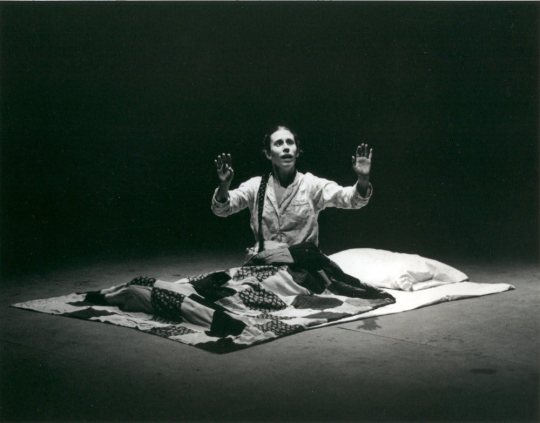
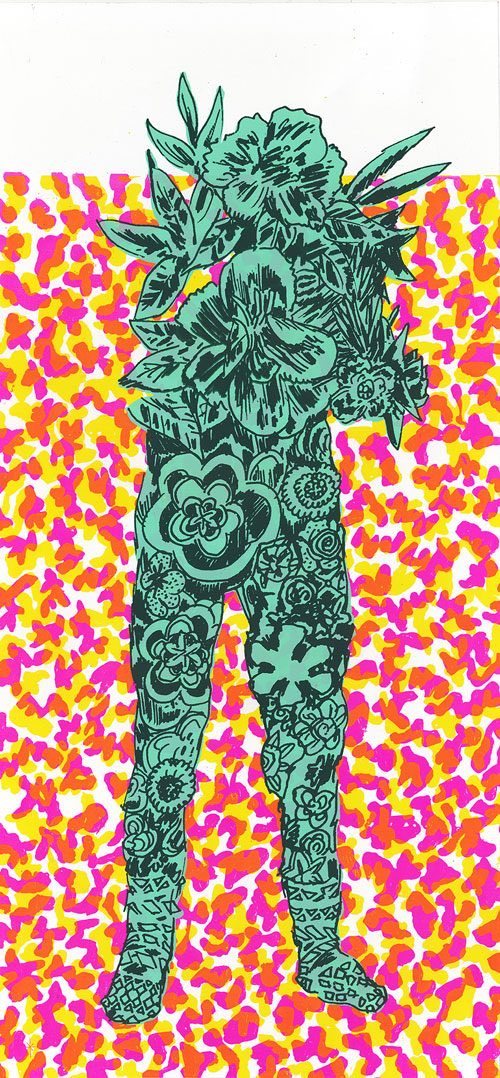
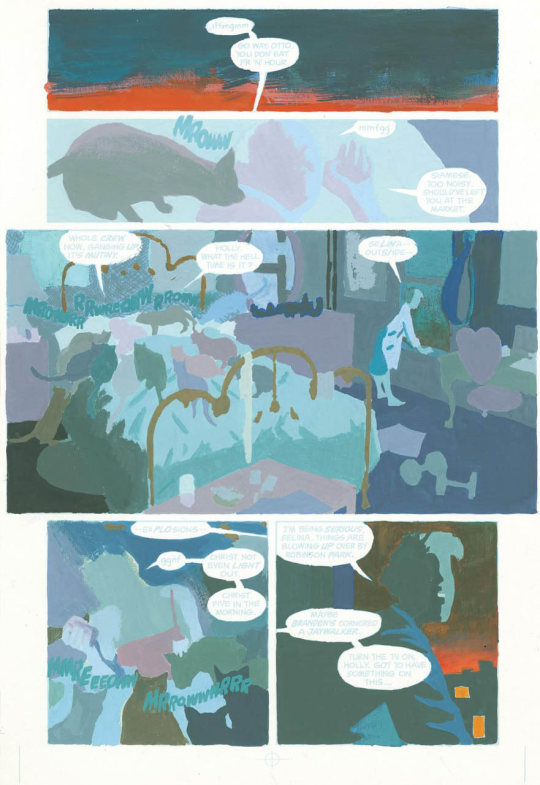




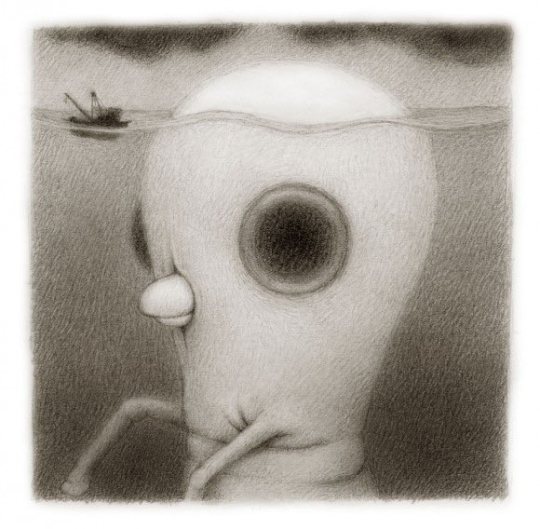





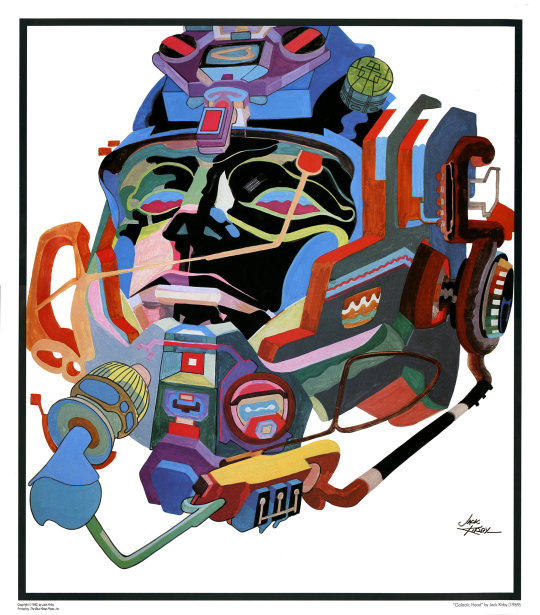
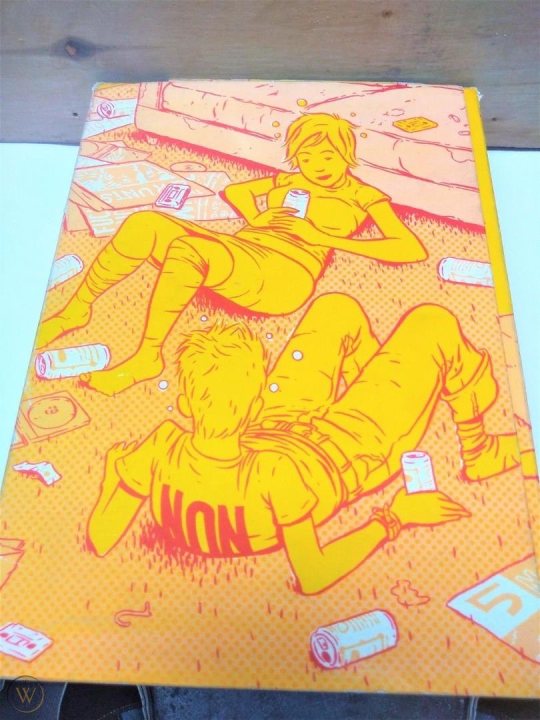
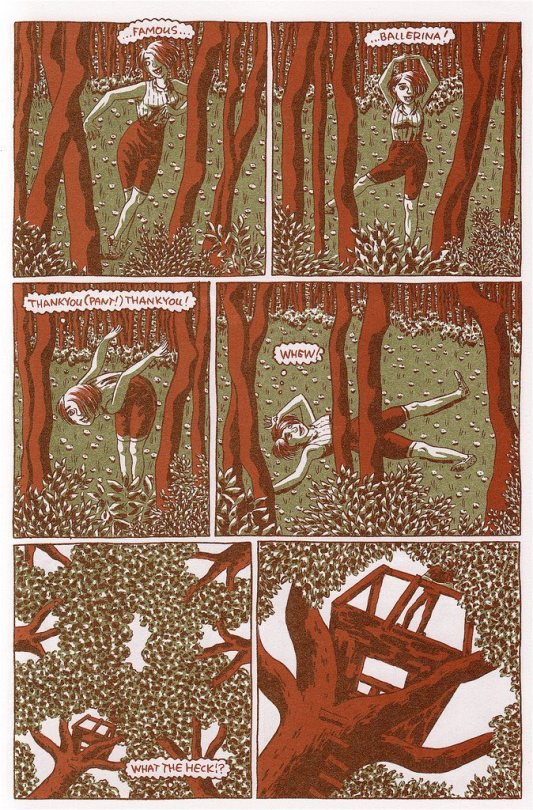


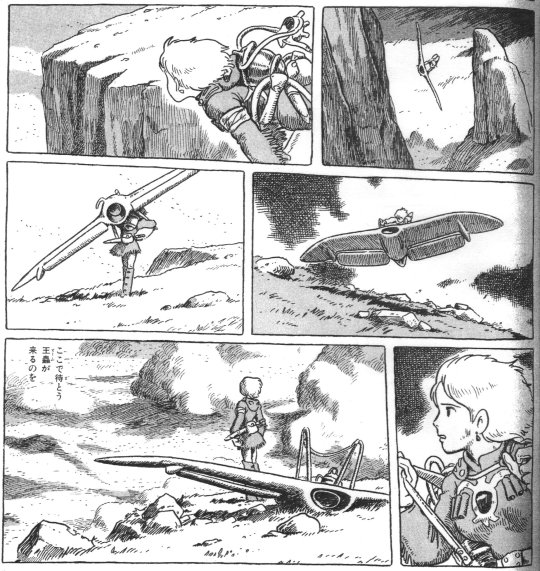


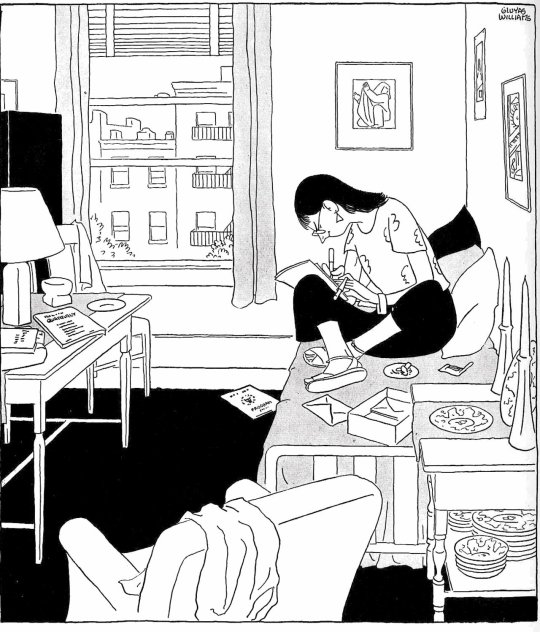
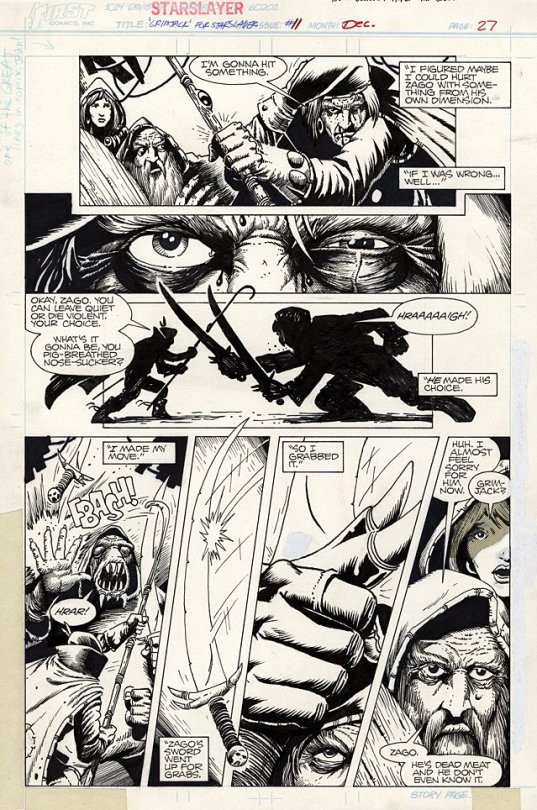

Archiving my artistic influences thread from twitter, continued. I liked this exercise, for all the usual narcissistic reasons, but also bc by juxtaposing all these artists that have affected me, I see where they connect to each other as well as myself. - Part 1 - Part 2 - Part 3 -
Meredith Monk
Brian Chippendale
Richmond Lewis
Dave Cooper
Gilbert Hernandez
Jorge Zaffino
Renee French
Jesse Marsh
Lauren Weinstein
Paris Cullens
Bengus
Philip Glass
Jack Kirby
Jordan Crane
Debbie Dreschler
Bryan Talbot
Joe Maneely
Hayao Miyazaki
Jon Bogdanove
Giant Robo
Gluyas Williams
Tim Truman
Brian Eno
#Meredith Monk#Brian Chippendale#Richmond Lewis#Dave Cooper#Gilbert Hernandez#Jorge Zaffino#Renee French#Jesse Marsh#Lauren Weinstein#Paris Cullens#Bengus#Philip Glass#Jack Kirby#Jordan Crane#Debbie Dreschler#Bryan Talbot#Joe Maneely#Hayao Miyazaki#Jon Bogdanove#Giant Robo#Gluyas Williams#Tim Truman#Brian Eno#artistic influences
32 notes
·
View notes
Text
'White Men Can't Jump' Trailer Teases New Streetball Hustle
20th Century Studios has debuted its first look at the remake of 1992’s classic sports comedy White Men Can’t Jump. Directed by Calmatic, who uses a script written by Kenya Barris, the film puts a modern spin on the hustle culture of street basketball. It stars Jack Harlow and Singua Walls.
(more…) “”

View On WordPress
#20th Century Studios#basketball#Blake Griffin#Calmatic#Doug Hall#E. Brian Dobbins#Hulu#Jack Harlow#James Powers#Kenya Barris#Lance Reddick#Laura Harrier#Myles Bullock#Noah Weinstein#Ryan Kalil#Singua Walls#Teyana Taylor#Vince Staples
3 notes
·
View notes
Text
Ep52 The Origin of Audrey Two w/ Anastasia Barzee! (Broadway!)
Merry Christmas! In the second of our Chrissy Double Feature, we're joined by Broadway Beauty Anastasia Barzee for a celebration of all things Christmas! With this darlin' diva, we'll chill-out to Halford's 'Winter Songs', and the original cast recording of 'White Christmas', plus we chat all things TV, Film, Theatre, and Angela Lansbury!
www.twitter.com/anastasiabarzee
#White Christmas#Anastasia Barzee#Halford#Brian Darcy James#Harvey Weinstein#Audrey Two#Music#Comedy#Broadway#Metal#Heavy Metal#Musicals#Critique#Reviews#Musical Theatre#West End#Aussie#Podcast#Commentary#Prog Rock#Prog Metal#Progressive Metal#Thrash#Thrash Metal#Thrash 'n Treasure#Glam#Glam Metal#Glam Rock#Evan Williams#Aaron Ware
0 notes
Text
The Burning (1981)
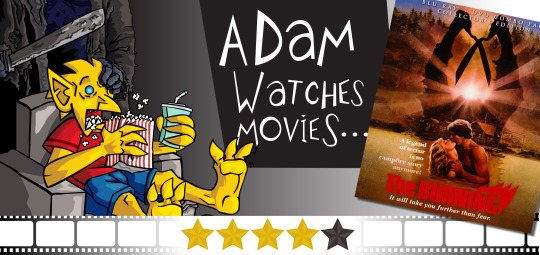
Every film genre is worth exploring but of course, it’s best to prioritize the groundbreaking, innovative and defining examples. If you wish to explore the slasher genre, have already memorized Halloween, have hammered out a definitive ranking for all of the Friday the 13th films and want something less "out there" than A Nightmare on Elm Street, then you're in the right mood for The Burning. With iconic imagery, high levels of suspense, plus everything you want from a movie about a killer in the woods, it’ll leave horror fans pleased.
5 years ago at Camp Blackfoot, a prank gone wrong gave the caretaker suffering horrific burns. Once released from the hospital, Cropsy (Lou David) sets out to punish the campers of Camp Stonewater, whose teenagers are all too similar to those who disfigured him.
If you scoff at the idea of young adults being cut to ribbons as entertainment and think gore only belongs in war movies - and even then, only to make a point about how wrong violence is - you’ve got no business watching The Burning. Even if you embrace the genre, the day-for-night scenes and occasionally dated character interactions (or maybe that's just how things were back then) will still make you cringe. You get over it thanks to the ample visceral thrills. Cropsy’s signature weapon is a pair of garden shears/hedge clippers. While a knife might slip quietly between your ribs and a machete will embed itself into your skull, this tool’s specialty is to sever, which is a whole lot of unsettling. To avoid repetition, the film’s body count showcases multiple ways to slay: impalements, stabbings, slashings, etc. If you want blood and gore, this movie’s got plenty without overindulging. You get enough to be shocked but the objective isn’t to gross out.
Plot-wise, everything follows a believable logic. Cropsy used to work at a camp. He knows how things operate, when campers will become isolated and how to cover up his crimes. His murders go undetected for as long as they do because he's careful. There are a lot of campers in the film and they all have their individual stories going on. Sally (Carrick Glenn) holds a grudge against Alfred (Brian Backer) after he tries to scare her in the shower. He says he was just trying to get back at her boyfriend, Glazer (Larry Joshua) who has been mercilessly bullying him. Karen (Carolyn Houlihan) is being pressured to have sex with Eddy (Ned Eisenberg). They have an argument and meanwhile, Cropsy is watching. You get a feeling the killer is always just outside of view, waiting for the right opportunity to strike. The multitude of possible victims, along with the casual sexism of the late ‘70s/early ‘80s makes it difficult to pinpoint who is “good enough” to survive and who will be “punished” by Cropsy. When something goes wrong, everyone assumes it’s the kids trying to pulll pranks or over engaging in teenage drama. No one could suspect the truth but you know and you’re nervously watching, wondering what’s coming next.
The Burning deviates enough from the formula to keep things interesting but also retains what made the genre so popular in its heyday. The gore, makeup and special effects are impressive. The sight of those shears gleaming in the summer light as Cropsy prepares to sink them into his next victim's flesh is hard to forget. It's not reinventing the wheel, it might be tasteless and occasionally dated but what clenches it as a good movie is the conclusion. We get a terrific, final scare; a thematically appropriate final note that makes you eager to revisit The Burning again. (On Blu-ray, November 13, 2020)
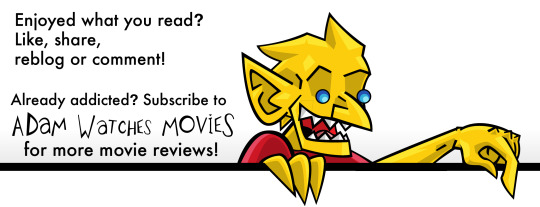
#The Burning#Movies#films#Movie Reviews#Film Reviews#Tony Maylam#Bob Weinstein#Peter Lawrence#Brad Grey#Harvey Weinstein#Brian Matthews#Leah Ayres#Brian Backer#Larry Joshua#Lou David#1981 movies#1981 films
0 notes
Text
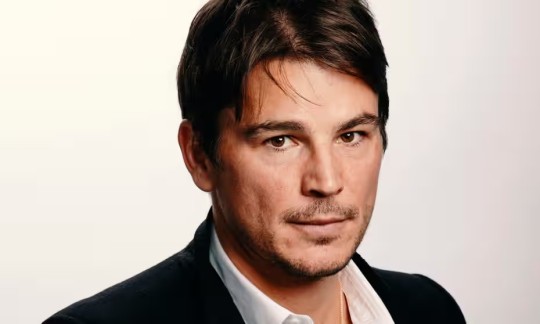
Josh Hartnett: 'People genuinely thought I'd been thrust on them'
Ryan Gilbey
Twenty years ago he was one of the world’s hottest young actors, before he retreated – and ended up in Surrey. He explains why he had to leave Hollywood – and what he knew about Harvey Weinstein
Fri 23 Oct 2020 06.00 BST
Source :
Josh Hartnett is sitting at home in Surrey, thinking about the time he was asked to play Superman. “I had this idea that because he lives in this world where he can’t touch anything without it flying across the room, he has become almost afraid of himself and his own power. He doesn’t know how to be Superman any more. He’s so afraid, he has become almost neutered by the experience of living on Earth, where he can blow things up just by looking at them.”
The studio demurred – “They didn’t really want a fear-based character at the centre of their movie,” he says wryly – and Hartnett walked away. But his Superman concept now feels like a metaphor for what was happening at the time in his own life, as he became increasingly overwhelmed, even horrified, by his status and the hysteria that surrounded it. Twenty years ago, the hottest young male actors in Hollywood were Leonardo DiCaprio, Will Smith, Matt Damon, Ben Affleck – and Hartnett. Michael Bay, who directed him in Pearl Harbor, put it bluntly: “He’s going to be fucking huge.” The actor grimaces at the mention of that. “Huge was never something I aspired to,” he says.
Back then, he seemed like a pretty kid who had got in over his head. Now 42, he has acquired the squinting, quizzical handsomeness of Richard Gere. He and his wife, the British actor Tamsin Egerton, moved to Surrey with their two young children to be closer to her parents, he explains. “And then, of course, coronavirus ...” In other words, they’re not going anywhere. So he has time to talk and a new film to talk about: the factually based thriller Target Number One, which is better than any of its plucked-from-a-hat titles (it has also been known as Gut Instinct and Most Wanted) might suggest.
This is partly due to the dazzling Antoine Olivier Pilon, star of Xavier Dolan’s psychodrama Mommy. He plays a real-life petty drug dealer who was sentenced to life in a Thai jail after being set up by Canadian police. Hartnett is solid in the less showy, meat-and-potatoes role of the journalist Victor Malarek, who fought to expose the truth. In this capacity, he gets to perform the time-honoured All the President’s Men routine of storming into his editor’s office, tossing a newspaper on the desk and demanding to know where the hell his story is.
Hartnett does his homework. On The Virgin Suicides, it wasn’t enough to play what the director Sofia Coppola had written; he also raked over his character, a dreamy high-school stud, with Jeffrey Eugenides, who wrote the original novel. On Brian De Palma’s film noir The Black Dahlia, Hartnett trained as a boxer for several months, simply because his character, a cop, used to be one. Naturally he met with the real Malarek before playing him. Why? “I wanted to see if he was full of shit.”
Malarek, he explains, has been accused by his critics of putting himself at the forefront of his own stories. “Ultimately, Victor is a humble man, but he does think of himself as someone who stands up for people in vulnerable positions. He likes to insert himself into a situation, though in my opinion what he’s really doing is putting himself in the line of fire. In a way, he almost downplays his own contribution.” Malarek has said that he had no idea who Hartnett was. As someone who has spent the last 15 years or so running from fame, this must have pleased him. “I didn’t assume he’d know me,” he says. “My interest in going to meet him was not to have flowers laid at my feet.” So he didn’t take along a signed Pearl Harbor poster? “I should have done. That would have been a great introduction. ‘Hi, I used to be somebody …’”
Quite. At the end of the 90s, Hartnett was everywhere. He starred in back-to-back horror hits – the aliens-in-high-school romp The Faculty and the sequel-cum-reboot Halloween H20 – and resembled a walking shampoo commercial in The Virgin Suicides, where he sashayed in slow-motion to the sound of Magic Man by Heart.
“It’s a little bit heartbreaking to see all that time has passed,” he says. “I was a child. I was 19. The Virgin Suicides felt like a group of friends all pulling together. I think I’m still looking for that experience whenever I make a film.”
The Faculty and Halloween H20 were produced by Dimension, the horror arm of Miramax, making Hartnett part of the Weinstein brothers’ stable of talent. “I was a kid who they felt they should invest in, but I didn’t spend a ton of time with them,” he says. “We had a sort of antagonistic relationship because the contract I signed for those first two films guaranteed me to be a part of, like, five more or something. They’re called contract extensions. I was told at the time that nobody ever uses them, but then I guess I became popular and they decided to, um, exercise that right. What they did a few times was to jump on other projects I was working on already and become co-producers.” These included O a modern-day Othello with Hartnett impressively coiled as the Iago figure, and the comic thriller Lucky Number Slevin, in which he seemed to be poking fun at his own image by spending the first half-hour scampering around in nothing but a towel.
He shifts uneasily when I ask whether he was surprised by the revelations about Harvey Weinstein. “There are all sorts of rumours about guys like that which permeate the business and you think, ‘That’s awful.’ The casting couch was a thing people joked about when I was first in the industry, so it was an open secret that this business is a little bit fucked up.”
When he was offered Pearl Harbor, his instinct was to turn it down. “I didn’t necessarily want things to change that much,” he says. “I was happy with the amount of fame I had and the types of roles I was getting. At the same time, I asked myself: ‘Am I just afraid that by doing Pearl Harbor, I’m going to enter a new category of film-making that I might not be ready for?’ I ultimately chose to do it because turning it down would’ve been based on fear. Then it defined me, which means I was right to fear it.”
His co-stars didn’t have it easy either. Kate Beckinsale was told to work out (“I just didn’t understand why a 1940s nurse would do that,” she said) while Affleck was ordered to get new teeth. “Well, they are great teeth,” Hartnett says. “I was asked to work out, too. But you know, I could have used it. I was 165lb wet. I was a really skinny kid.”
As well as his own misgivings about the project, there was the heightened press attention, including a splashy Vanity Fair interview with him from the set of Ridley Scott’s Black Hawk Down. “Oh, that was an awful piece,” he shudders. “Was there even a quote from me in it, or was it just everyone talking about how hot I was? People got a chip on their shoulder about me after that. They genuinely thought I’d been thrust on them. It was a very weird time.”
It was around then that he plotted his calculated retreat. After Superman, there were reports that he had also turned down Batman; in fact, he didn’t get any closer to that part than a conversation with Christopher Nolan. But the perception of him in Hollywood began to change. “They looked at me as someone who had bitten the hand that fed me. It wasn’t that. I wasn’t doing it to be recalcitrant or a rebel. People wanted to create a brand around me that was going to be accessible and well-liked, but I didn’t respond to the idea of playing the same character over and over, so I branched out. I tried to find smaller films I could be part of and, in the process, I burned my bridges at the studios because I wasn’t participating. Our goals weren’t the same.”
He has put his movies where his mouth is, working with idiosyncratic directors such as Tran Anh Hung on the thriller I Come With the Rain and Atsuko Hirayanagi on the comedy Oh, Lucy. Nor is he averse to the mainstream: he will next be seen alongside Jason Statham in Guy Ritchie’s Wrath of Man. But it’s a measure of how unusual it is for a star to withdraw so early in his career that by the time Hartnett made The Black Dahlia in 2006, GQ magazine was already referring to it as his comeback.
“I’m happy to be done with that era and to be making films that are more personal to me,” he says. “Directors are coming to me to play characters as opposed to versions of a hero I played in a movie once.”
He is nothing if not conscientious. A few days after our Zoom conversation, he phones me because something has been bothering him: he doesn’t feel he made his feelings about Weinstein clear. This time, he puts it as plainly as he can. “I wasn’t surprised he was a creep,” he says. “But I guess I was surprised at the extent of his creepiness.” He’s concerned, too, about what comes next. “The shameless seem to be finding it easy to make a comeback. Louis CK has been pretty shameless. Harvey Weinstein, if he had the tiniest bit of daylight in there, would find a way to get back in. Those are situations that freak me out.” But there are, he says, visible changes taking place. “Different things are expected of the way people act on set. There’s an open line of communication now for anyone who feels they’re being harassed. And there’s less of the so-called locker-room humour that people used to hide behind.”
Was he ever harassed as a young actor? “The last thing I want to do is come across like … You know, I’ve been in situations where I’ve been uncomfortable with my boss’s behaviour but I’m not gonna say …” He changes tack. “That’s not my experience and it’s not my place to claim that. It makes me feel icky to try to do so.”
He also tells me that he went back to that Vanity Fair article and realised it wasn’t so bad after all. “It’s just that it happened at a time when I wasn’t that famous, and it seemed to already be asking whether I should be or not. I felt like: ‘Oh my God! I’m not the tallest poppy yet – don’t cut me down!’ I was being compared to Tom Cruise and Julia Roberts and that’s insane. It was a set-up-to-fail moment.” He gives a sigh. “It was actually an interesting look at the nature of fame. If only it wasn’t about me.”
#josh hartnett#beautiful giant#the guardian#interview#quotes#the virgin suicides#the black dahlia#lucky number slevin#black hawk down#pearl harbor#Othello#the faculty#halloween h20#wrath of man#oh Lucy#i come with the rain#penny dreadful#target number one#superman
16 notes
·
View notes
Photo
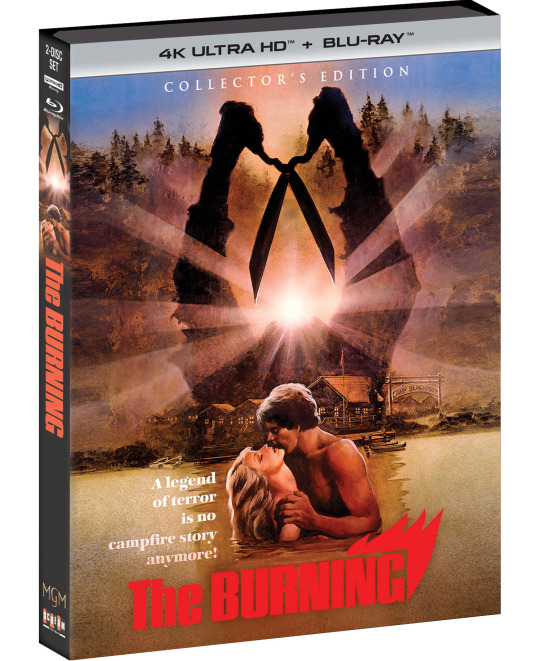
The Burning will be released on 4K Ultra HD + Blu-ray on July 11 via Scream Factory. The 1981 slasher features special effects by Tom Savini (Friday the 13th, Dawn of the Dead).
Tony Maylam (Split Second) directs from a script by Peter Lawrence and Bob Weinstein. Brian Matthews, Leah Ayres, Brian Backer, Larry Joshua, and Lou David star, while Jason Alexander, Fisher Stevens, and Holly Hunter make their film debuts.
Final extras will be confirmed at a later date, but the preliminary list is below.
Special features:
Audio commentary by director Tony Maylam and film critic Alan Jones
Audio commentary by actors Shelley Bruce and Bonnie Deroski
Interview with special effects artist Tom Savini
Interview with actor Lou David
Interview with actress Leah Ayres
Interview with editor Jack Sholder
Behind-the-scenes footage
Theatrical trailer
Make-up effects still gallery
Poster & still gallery
After a cruel joke goes awry, severely burning him and subjecting him to five years of intensive, unsuccessful skin graft treatments, Cropsy (Lou David) is back at camp...and ready to wreak havoc on those who scarred him! With his hedge clippers in hand, he terrorizes the camp and systematically mutilates each victim. Can a few courageous campers save themselves and destroy this demented madman before he kills them all?
Pre-order The Burning.
#the burning#horror#80s horror#1980s horror#slasher#scream factory#dvd#gift#jason alexander#fisher stevens#holly hunter#80s movies#1980s movies#80s slashers#tony maylam
20 notes
·
View notes
Text
Jack Harlow Gets Dunked On in ‘White Men Can’t Jump’ Remake Trailer [Video]
Walker
April 22, 2023 8:45 AM PST
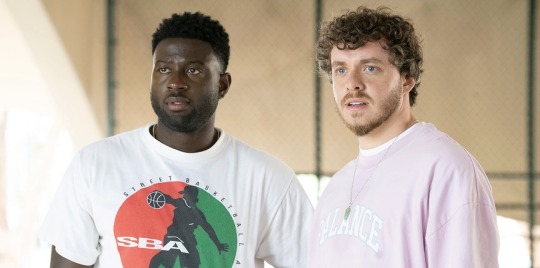
Jack Harlow made headlines back in March thanks to the exciting announcement of his official film debut. The Kentucky-raised star landed the lead role in 20th Century’s forthcoming reboot of White Men Can’t Jump, a well-loved classic about a privileged guy who ironically turns out to be the secret weapon in a basketball tournament. His rival-turned-friend is played by Sinqua Walls.
via: The Hollywood Reporter
Walls (Friday Night Lights) and rapper Harlow — making his film debut — take over the roles played by Wesley Snipes and Woody Harrelson, respectively, in the 1992 hit comedy by writer-director Ron Shelton.
The trailer is full of the on-court trash-talk that the original machine-gunned so deftly, with Harlow being referred to as “a yoga teacher” who is allowed to enter the gym and told he’s dressed like “a white girl at Whole Foods” and “wearing a fake-ass Richard Simmons outfit,” among other slams.
In the new film, Sinqua Walls “stars as Kamal, once a promising player who derailed his future in the sport, and multi-platinum rap superstar Jack Harlow makes his movie debut as Jeremy, a former star of the game whose injuries stalled his own career. Juggling tenuous relationships, financial pressures and serious internal struggles, the two ballers — opposites who are seemingly miles apart — find they might have more in common than they imagined possible.”
The film is directed by Calmatic (House Party) and also stars Teyana Taylor, Laura Harrier, Vince Staples, Myles Bullock and the late Lance Reddick. White Men Can’t Jump is written by Kenya Barris and Doug Hall. The film is produced by Barris and Hall; it’s executive produced by Blake Griffin, Ryan Kalil, Noah Weinstein, Calmatic, Doug Hall, E. Brian Dobbins and James Powers.
The release from 20th Century Studios beings streaming on Hulu on May 19.
youtube
Sent from my iPhone
5 notes
·
View notes
Text
Amber Supporters 💜
This is a compiled list of celebrities and other public figures that have commented on or liked Amber’s statement, or have expressed their support in some other way (Instagram stories or maintaining a friendship with her, etc.).
In bold you’ll find the most important people that believe and support Amber: the experts. || updated: 4/9/23
Over 130 experts listed here: Experts Supporting Amber
Abby Elliot (follows; liked statement; liked numerous supportive posts)
Adam Ellis (supportive post)
Aja Naomi King (worked with; follows; does not follow JD)
Alejandro Gomez Monteverde (vocal support; dated Amber)
Alex Winter (supportive posts; male abuse survivor)
Alexa Nikolas (DV survivor; vocal support; inspired to create Eat Predators because of the smear campaign against Amber)
Ally Walker (follows; liked statements)
Amanda Kippert (domestic violence journalist; vocal support)
Amanda Marcotte (liked supportive posts)
Amanda Seyfried (liked & shared supportive post)
Amy Kaufman (supportive posts)
Andy Richter (supportive since 2016; liked supportive posts)
Ashley Judd (liked & reposted supportive post)
Audrey Wauchope Lieberstein (supportive posts)
Azealia Banks (anti-JD post)
Barbara Muschietti (liked statement; sister of Amber’s ex)
Bitsie Tulloch (supportive post)
Brett Gelman (liked supportive article)
Brian Cox (vocal support)
Brooke Williams (liked supportive posts; follows)
Busy Philipps (liked supportive post)
Carice van Houten (liked supportive post)
Caterina Scorsone (follows; liked statements)
Chrissy Teigan (unconfirmed; shown past support)
Christina Ricci (supportive content; DV survivor; felt traumatized by the trial)
Christine Lahti (supportive post)
Clarice van Houten (liked statement)
Claudia Traisac (liked statement)
Clementine Ford (vocal support)
Constance Wu (supportive posts; vocal support; signed Letter for Amber)
Corey Rae (vocal support)
Corinne Fisher (supportive post)
Custody Peace (Coercive Control & Post-Separation Abuse advocates; vocal support)
Daine (liked supportive thread)
Dave Annable (follows; liked statement)
David Guetta (liked statement)
David Krumholtz (vocal support; worked with)
Dolph Lundgren (worked with; vocal support)
Dr. Andrew Thomas Cicchetti (trauma-informed therapist; vocal support)
Dr. Charlotte Proudman (lawyer and activist; vocal support)
Dr. Christine M. Cocchiola (IPV advocate; vocal support)
Dr. Jennifer Freyd (sexual violence expert, psychologist, and the coiner of DARVO; vocal support)
Dr. Jessica Taylor (CEO of VictimFocus; vocal support)
Edward Norton (liked supportive posts)
Eliza Skinner (supportive posts & likes)
Elizabeth McGovern (vocal support; signed Letter for Amber)
Elizabeth Reaser (vocal support; liked supportive posts)
Ellen Barkin (supportive posts; dated JD; testified against him twice describing violent and abusive behavior)
Emily Ratajkowski (liked supportive posts)
Emma Katz (domestic abuse researcher; vocal support)
Ethel Cain (liked Amber’s posts about the trial)
FKA Twigs (supportive comments; DV survivor)
Hilarie Burton (liked supportive post)
Hire Survivors Hollywood (founded by actor & Weinstein Silence Breaker Sarah Ann Masse; vocal support)
Ilana Kaplan (supportive post)
Ilya Savenok (supportive post)
Jack Black (followed in 2023)
Jaime King (supportive comments)
January Jones (liked supportive post)
Jennifer Kaytin Robinson (liked supportive post)
Jessica Alba (follows; does not follow JD)
Jessica Chastain (follows; does not follow JD)
Jessica Valenti (supportive articles and posts)
Jodie Turner-Smith (liked supportive posts)
John Legend (liked supportive posts)
Jon Huertas (liked supportive posts)
Josh Radnor (liked a Tweet about the misogyny around the trial and the misogynistic smear campaign)
Julia Fox (vocal support)
Julia Stiles (liked supportive post)
Julie Owens (National Coalition Against Domestic Violence consultant; vocal support)
Kalhan (liked supportive posts)
Kate Herron (supportive posts)
Kate Nash (liked statement)
Kathy Griffin (vocal support)
Laura Benanti (follows; worked with; supportive comment)
Lauren Hough (follows; supportive posts)
Lena Headey (liked statement)
Leslie Morgan Steiner (DA survivor & advocate; vocal support)
Lily James (liked statement)
Luca Calvani (vocal support; worked with)
Lundy Bancroft (author of the book “Why Does He Do That?”, domestic violence consultant; vocal support)
Marie Kreutz (supportive Instagram story)
Marisa Tomei (supportive posts & likes)
Mel B (follows; talked about the verdict in an article; DV survivor)
Melanie Lynskey (liked statement)
Melissa Benoist (follows; liked supportive posts; DV survivor)
Melissa Schuman (follows; vocal support)
Mia Farrow (actress; vocal support; deleted posts after harassment)
Michael Hobbes (wrote a supportive article)
Michael J. Metzner (friend; follows; vocal support)
Michelle Pfeiffer (actress; shared an article that supported Amber)
Moira Donegan (liked supportive posts)
Monica Lewinsky (supportive posts)
Nathalie Emmanuel (liked supportive posts)
National Coalition Against Domestic Violence (vocal support)
Neil Gaiman (supportive posts; deleted posts after harassment)
Nicole Kidman (worked with; follows; does not follow JD)
Nikki Glaser (supportive posts)
Olly Alexander (Former Fenty model; has vowed to never wear the brand again after them featuring JD)
Patricia Arquette (supportive post about protecting Amber & her child from Deppstans)
Perez Hilton (vocal support)
Phoebe Bridgers (liked supportive post and supported her in interview)
Phoebe Dynevor (liked supportive article)
Rachel Riley
Raphael Bob-Waksberg (supportive post)
Rian Johnson (made supportive post)
Rosanna Arquette (liked & shared supportive posts)
Ruth Glenn (President & CEO of the National Coalition Against Domestic Violence; spoke in a documentary about the VA trial)
Ryn Weaver (liked statement; liked & shared supportive posts)
Sarah Marshall (supportive post)
Sarah Paulson (shared podcast about trial, then began following Amber)
Sarah Steele (follows; liked statement)
Sebastián Córdova (follows; liked statement)
Selma Blair (liked statement & numerous supportive posts)
Seth Green (liked supportive post)
Shanika Warren-Markland (supportive post)
Shraddha Das (liked supportive posts)
Simi Garewal (supportive posts)
Sophia Bush (liked supportive posts)
Stephanie Land (supportive post; DV survivor)
Talia Ryder (liked article in support of Amber)
Tasya van Ree (ex-wife)
Tova Leigh (supportive posts)
Vanessa Carlton (follows; liked statement & anti-JD posts)
Victoria Princewill (supportive post)
Willa Fitzgerald (liked supportive posts)
Zara Larsson (multiple Instagram stories in support of Amber)
Followers
These people follow Amber but haven’t shared support yet that I know of.
Adam Cooper
Alessandra Ambrosio
Ali Landry (married to Amber’s ex-boyfriend)
Alyshia Ochse
Camilla Luddington
Carolina Herrera
Dan Stevens (worked with; follows)
Ed Helms (worked with)
Emma Roberts
Esther Acebo
Grace Van Dien (started following in 2023!)
Jenna Dewan (worked with)
Jurnee Smollet
Katherine McNamara (worked with)
Kumail Nanjiani
Matt McGorry
Mindy Kaling
Odette Annable (worked with)
Padma Lakshmi
Seth Rogen
Thandiwe Newton
Tracie Egan Morrissey
Witney Carson McAllister
Yahya Abdul-Mateen II (worked with)
Can’t Make Up Their Mind
Cara Delevingne (worked with; close friend of AH; follows both)
Danny Trejo (worked with; follows both)
Elon Musk (dumped by AH twice; attacked JD’s team for purposely cropping out/erasing timestamps in court; his “public statement” is that AH and JD are both “incredible” people)
Eva Longoria (follows both; works with AH)
Jason Momoa (worked with; follows & liked AH’s statement; follows & liked JD’s statements too)
Karen Gillan (unfollowed 6/10/22 & then followed JD)
Katheryn Winnick (worked with; follows AH, recently began following JD)
Sharon Stone (follows both)
If you know of more, send them in.
42 notes
·
View notes
Text
someone on HDB just called brian a weinstein-esque pedophile and you know what? actually i’m done with the beatles fandom. peace out motherfuckers. i hate you and it fucking sucked being here
32 notes
·
View notes
Text
PFUI TEUFEL
#MossadIsland
● Hillary Clinton
● Bill Clinton
● George Nader (Geschäftsmann)
● Huma Aberdin
● Laura Silsby
● Rachel Chandler
● Jeffrey Epstein
● Ghislaine Maxwell
● John Podesta
● Michael Podesta
● James Alefantis
● Anthony Wiener
● Leslie Wexner (limited Inc-Vorsitzender)
● Herbert Strauss
● Isidor Strauss
● Martin A. Nowak
● Steven Spielberg
● Edgar Bronfman Sr. (Seagram-Vorsitzender)
● Charles Bronfman (Seagram Co)
● Michael Steinhardt (ehemaliger Hedgefonds-Manager)
● Sara Bronfman
● Clare Bronfman
● Niles Lehman (Professor an der Portland State University)
● Seth Roger
● Ruth Ginsberg
● Alison Mack
● Robert Maxwell
● Wendi Murdoch
● Jonathan Tscheban
● Naomi Campbell
● Maxime Chow
● Val Kilmer
● Marina Abramovic
LISTE DER HOLLYWOOD PEDO-NAMEN:
● Steven Spielberg
● Kevin Spacey
● Alison Mac
● Marc Collins-Rector (Gründer von Den)
● Chad Shackley
● Brock Pierce
● David Geffen
● Tom Hanks
● Dustin Hoffman
● Andrew Kreisberg (US-amerikanischer Fernsehschreiber, Produzent)
● Bryan Singer
● Harvey Weinstein
● Bob Weinstein
● Roman Polanski
● Ruma Hazard
● Charlie Sheen
● Madonna
● Kate Perry
● Miley Cyrus
● Errol Flynn
● Billy Graham
● Walt Disney
● Michael Laney (ehemaliger Walt Disney Vizepräsident)
● James Gunn (Disney)
LISTE DER NAMEN VON CELEBS, DIE MIT DEEPSTATE, CIA & MOSSAD verbunden sind:
● Heidi Fleiss
● Jeffrey Epstein
LISTE DER NAMEN, DIE MIT SATANISCHE KULTEN VERBUNDEN:
● Alison Mack
● Stormy Daniels
● Rachel Chandler
● Ghislaine Maxwell
LISTE DER NAMEN DER BESUCHER AUF DER EPSTEIN INSEL:
● Ghislaine Maxwell
● Chris Tucker
● Larry Summer
● Lisa Summer
● Bill Murray
● Bill Hammond
● Ehud Barak
● Andrés Pastrana (ehemaliger Präsident Kolumbien 1998-2002)
● Jean Luc Brunel
● Doug Band
● Ron Burkle
● Woody Allen
● Sarah Kellen
● Ray Barzanna
● Sandy Burger
● Andrea Mitrovitch
● Peter Marino
● Shelley Lewis
● Paul Hala (t) (d) a
● Richardo Legoretta
● Tom Pritzker
● Kelly Spamm
● Tiffany Gramza
● Claire Hazel
● Paula Epstein
● Mark Epstein
● Ralph Elison
● Sophie Biddle
● Audrey Raimbault
● Shelley Harrison
● Melinda Luntz
● Gwendolyn Beck
● Albert Pinto
● Richard "Handsome Dick" Manitoba
● Gary Roxburgh
● Mandy Elison
● Jean Michelle Gathy
● Virginia Roberts
● Kristy Rodgers (Kristina Real Rodgers)
● Greg Holbert
● Alyssa Rodgers
● Juliette Bryant
● Heather Mann
● Ed Tuttle
● Glen Dubin
● Ellen Spencer
● Chris Wagner
● Casey Wasserman
● Laura Wasserman
● Paul Mellon
● Oliver Sachs
● Henry Rosovsky
● Lynn Forster (de Rothschild)
● Joe Pagano
● Naomi Campbell
● Nicole Junkermann
● Rodney Slater
● Magali Blachon (Deperrier)
● Svetlana Griaznova
● Emmy Tayler
● Larry Visoski
● Carrie Davies
● Johannes (Paul) Molyneux
● Freya Willemoes Wissing
● Adam Perry Lang
● Fleur Perry Lang
● Caren Casey
● Hank Coller
● Cindy Lopez
● Mark Lloyd
● Alan Dershowitz
● Seth Green
● James Gunn
● Steven Spielberg
● Tom Hanks
● Steven Colbert
● Jimmy Kimmel
● Barack Obama
● Kevin Spacey
● Kathy Griffin
● Oprah Winfrey
● Shawn Carter
● Beyoncé Knowles
● Anthony Kiedis
● John Legend
● Chrissy Tiegen
● Jim Carrey
● Steven Tyler
● Ben Affleck
● Stephen Collins
● Will Ferrell
● ALIAUNE DAMALA BADARA THIAM (Akon)
● Marshall Counts
● Jeffrey Jones
● Victor Safe
● Mark Collins Rector
● Charlie Sheen
● Tyler Grasham
● Madonna Ciccone
● Katheryn Hudson
● Gwen Stefani
● Stefani Germanotta
● James Franco
● Will Smith
● Justin Roland
● John Cusack
● Anderson Cooper
● Demi Moore
● Brian Affleck
● Meryl Streep
● Wanda Sykes
● Chelsea-Handler
● Michelle Wolf
● David Jarovesky
● Pharrell Williams
● Quentin Tarantino
● Courtney Love
● Alec Baldwin
● Robert Downey Jr.
● Disney Corporation (Biete Kinder "Tauchen" Reisen, auf die Insel Epstein)
LISTE DER NAMEN, DIE MIT DEN STANDARD HOTELS VERBUNDEN
● Andre Balazs (Besitzer der Standard Hotels und mit den Rockefellers verbunden)
● Jay Z
● Beyoncé Knowles
● John Belushi
● Britney Spears
● Errol Flynn
● Dennis Hopper
● Helmut Newton
● Jim Morrison
● James Dean
● Billy Idol
● Victoria Beckham
● Heath Ledger
● Sienna Miller
● Balthazar Getty
● Scarlet Johansen
INDIVIDUALE DIREKT MIT JEFFREY EPSTEIN & DER EPSTEIN INSEL VERBUNDEN:
● Elon Musk
● Mark Zuckrberg
● Lawrence M. Krauss
● Steven Pinker
● Mick Jagger
● Courtney Love
● Joan Rivers (verstorben)
● Kevin Spacey
● Chris Rock
● Eli Weisel (Nobelpreis gewinnt Holocaust-Profiteur)
● Lauren Hutton (Top-Mode-Modell)
● Herzog & Herzogin von York
● Earl Spencer (der Bruder von verstorbenen Diana)
● Richard Bronson (englischer Geschäftsmann)
● Tony Blair (ehemaliger britischer Premierminister)
● David Koch (1/2 eines Bruders-Teams)
● David Rockefeller
● Evelyn de Rothschild
● Eduouard de Rothschild
JOURNALISTEN DIREKT MIT JAMES ALEFANTIS, COMET PING PONG & Mice FISCHERING, WASHINGTON DC:
● Jake Tapper (CNN)
● Jennifer Tapper (Frau von Jake Tapper)
● Ahorn Inc
JOURNALISTEN DIREKT MIT JEFFREY EPSTEIN & DER EPSTEIN INSEL VERBUNDEN:
● Barbara Walters
● Mort Zuckerman
● Eric Margolis
● Rupert Murdock
● Conrad & Barbara Black; Baron Black von Cross Harbour
POLITITIKER DIREKT MIT JEFFREY EPSTEIN & DER EPSTEIN INSEL VERBUNDEN:
● Bill Clinton (ehemaliger Präsident von Amerika)
● Jon & Mary Kaye Huntsman
● Gouverneur Charles Turnbull (US-Jungferninseln)
● Henry Kissinger
● Ethel Kennedy
● Bobby & Mary Kennedy
● Senator Edward Kennedy (verstorben)
● Ted Kennedy Jr.
● Andrew & Kerry Kennedy Cuomo
● Maria Shriver (Kennedy-Verwandte / Schwarznegger Ex)
DIE DTLA STANDARD HOTEL :
(Freie 1992-2002)
● Keck Family (Standard-Öl / Gründer des Standard Hotels)
● Perry Mason
● Bank of California
● JP Morgan - Standard Oil
● Jeffrey Epstein
● Bear Stearns Group
● Standard companies
● Colombia Developement
5 notes
·
View notes
Note
And, perhaps inevitably, since Zachary Levi has been outed as an asshole, now we have people retroactively claiming that SHAZAM was always a terrible movie and they always hated it
I guess that means Disney’s Hercules, the Toy Story movies, Fullmetal Alchemist, GTA San Andreas, Monty Python and the Holy Grail, Life of Brian, Clone High, Beetlejuice, Baby Driver, Chinatown, The Shining, Bayonetta 1 and 2, Fight Club, Rosemary’s Baby, Machete, Jojo’s Bizarre Adventure, Adventure Time, Gravity Falls, The Mandalorian, Sin City, Sam Raimi’s Spider-Man movies, Gremlins 2, Seinfeld, Finding Nemo, A Bug’s Life, Jennifer’s Body, all the Mission Impossible movies, The Menu, Schindler’s List, and every movie produced under the Weinstein label are bad too
4 notes
·
View notes
Note
thoughts on the oscar noms?
Happy for the Best Actor category, aside from its blinding whiteness. I think it's Brendan's this year, but Austin could pull it out unexpectedly, and there's a dark horse narrative for Colin in there. Watch it be Paul Mescal lmao.
Best Actress is....... I'm pulling for Michelle. I think they'll give it to noted Woody Allen supporter and all around asshole Cate Blanchett because Hollywood loves giving Best Actress to the same white women over..... and over.... and over. But Michelle deserves in every sense of the world. I am... very opposed to Tar~ not only based on its status as a film but the message it sends (a cancel culture "examination (critique) about a lesbian!!! preying on her protégées!!! because what we need right now is a movie about a predatory lesbian trope playing parallel to people like Weinstein, portrayed by a Woody Allen supporter--I have to laugh).
Anything related to The Fabelmans I roll my eyes at, because that movie bombed so hard compared to how much it wad advertised that it would not possibly be getting a pass if it wasn't a Spielberg flick; much like West Side Story.
Ana de Armas getting nominated is a joke.
Stephanie Hsu was a totally unexpected nom--she deserves hard, but she was so... not backed? Compared to JLC? That I assumed she wouldn't get one. JLC getting nominated at all for so little screen time and such a normal performance compared to what like.... everyone else in that movie... was giving? Weird to me, but whatever, Angela is most likely taking it anyway and I'm very happy with that.
Very happy for Brian Tyree Henry, though I think Ke will win and should win for Best Supporting Actor. BTH is a fabulous actor.
I'm cool with all the noms for Banshees--that movie is... wild, but I appreciate its wildness considering how boring most of the noms are, and everyone (including Barry, who I.... don't get the hype around as a heartthrob?? but do see as a quirky character actor) did a great job.
I have no idea why Best Picture ... has so many noms. Like, EEAAO should win, hands down. I would've nominated Woman King. Again, good with Banshees getting in there. All Quiet seems like a Netflix buy-in; I've heard good things, but I read the book and have seen the original film, and I don't super wanna feel like jumping off a cliff, so I'll pass on this one. The Fabelmans got a Spielberg pass, and also benefited from a weak movie year in general. Avatar is dumb as hell. Personally, I would've done EEAAO (the movie that deserves to win), The Woman King (a more traditional epic), Banshees (the quirky weird one), Elvis (the SPECTACLE artsy movie that made money), and have a popcorn slot for either Wakanda Forever (well done, emotional, offbeat for Marvel while staying entertaining), or Maverick (military propaganda, ridiculous, but well-shot and cohesive and entertaining and I don't wanna give that Scientologist anything but if you're gonna do a popcorn crowd pleaser Oscar nom, it's WF first and tihis second, no Avatar).
5 notes
·
View notes
Text
Realism in Abolition: from an Interview with Mariame Kaba on the Beyond Prisons podcast
(transcript and audio at link)
Kim: Thank you. I’d like to switch gears now and talk a little bit about something else that I know we always get asked as abolitionists. People always want to know, “What about people that have caused serious harm to others?” I’d love to hear your thoughts about how you respond to this question.
Mariame: First, I understand, why people ask the question because society has done a really good job inculcating a bunch of fear in people. I don’t know if people know who’s actually in prison and who’s not, so there’s just a lot of misinformation. “Law and Order” really has done a real job on people, a real kind of brainwashing job about who gets incarcerated, who those folks are, what that means. There’s also a huge conflation I think that people have around connecting crime and connecting incarceration, and so those things have connections to each other when even the most conservative criminologists and theorists and researchers have found that “crime” and incarceration, the correlation between them is very faint and not as statistically significant as people think.
So, I understand that. I guess for me, if people think about sexual assault or murder, that usually happens between people who know each other really well. It’s very rare that you have actual “serial rapists” in the world that are portrayed on TV. That’s not what most sexual assault actually is. Most sexual assault is actually not reported, most people who engage in it are not actually in prison. This idea that if you don’t have prison that’s going to flood the universe with all these sexual predators is completely not borne out by the actual empirical facts that we have going on right now. And it’s a great moment to think about that when more and more people are being either outed as sexual harassers and assaulters in the media through these revelations, ever since the Weinstein article in the [New York] Times. Can you imagine incarcerating all those men? They’re mostly men, as sexual predators. What would the system need to look like for that to be the solution to a problem that is actually about systemic, structural inequities in power?
I just think people have this idea that the 5% of the people who are actually in prison for murder and rape are everybody who’s in prison. And so, the ending of prisons doesn’t actually do the thing that you’re thinking in your head would happen. In fact, the prison itself is such a perpetrator of sexual violence that if you are somebody who cares about ending sexual violence, you have to end the prison, too. These things are not separate from each other. If you are somebody who’s concerned with murder, the prison is a murderer. You have to end that, too. It’s its own form of violence.
That’s really a way of thinking about that. Prisons don’t stop murder because we have murder, you know? So, you have to ask yourself the question about, “What are you trying to do?” and if it’s to increase actual safety, “What would lead to that? What would actually get us safe?”
We know that strong relationships with each other that are based on healthy accountability is the way to go, so, the question is how do we get to that? My interest has been in trying to figure that part of the equation out and I don’t feel in any way defensive when people kind of point the finger at the abolitionist and say, [mock yelling] “Well what are we going to do about all the…?” and it’s usually like that, it’s not ever like a calm-
Brian: [laughing] Right.
Mariame: …[mock yelling] “But what about all the rapists and murderers?” I always say to people, “Ask yourself what’s happening to you right now. Why are you so agitated?” You know what I mean? “What’s going on?” Because the prison and the police are so in your head and your heart, you’re feeling personally affronted, because you think, these institutions matter to you quite a bit and the question is, “Why do they matter so much to you? Are they doing what they say they’re doing? Are they keeping the world safe?” I’m just asking you to think about that, to answer that question yourself. If you feel like these institutions are working well and doing exactly what it is that you’d hope they do, then you shouldn’t be mad at people who are trying to... then you’re fine, you’re just living in the world that exists. But if you’re somebody that thinks these things are actually damaging and you think them “working” is actually working to further oppress and cause more violence, then you’re interested in something else and then, you and I can have this conversation about that. We can talk.
I also want to say that abolition is a collective project, it isn’t an individual project. Even though we individually are doing abolitionist acts on a daily basis whether we know it or not, it is a collective project, which means that one person is not responsible for coming up with “the solution.”
Kim: Absolutely.
Mariame: We have to come up with a solution based on our cultures and our communities and it’s again, based on our needs, our desires, our wants. So, me standing up there and making a big speech to you about abolition as a lofty… means zero. What does that mean in your life, in your world, in your context, in your community, with your people? How are you practicing abolition and how are you getting your ultimate goal if your ultimate goal is more safety?
So, when people say, “What about the rapists and the murderers?” I really want to say, “Well what about them?” because they’re pretty much already not in prison.
Kim: Exactly.
Mariame: We’re already living, if you want to call that abolition, we’re already living that kind of abolition, so that’s why abolition for me is not mainly about the destruction or dismantling of the prison and the police and surveillance, though that’s critically important, it’s creating the conditions necessary so that those things don’t need to exist. That’s a very different project and that’s a very different angle. That’s something that allows for a freedom to do a whole bunch of things that aren’t even only and mainly about trying to end prisons or policing or surveillance. That’s about making sure people have living wages, that’s about making sure people have actual housing, making sure people have good educations, making sure people have environmental health and not environmental racism, making sure we don’t all die on the planet. All these things are abolitionist projects.
That’s the thing that most people that aren’t abolitionists in terms of, people who’ve studied, who have practiced, who’ve organized under an abolitionist set of framework and ideology… I think most people think about it in an analytic exercise. But for me, it’s always been actual practice. I’m an organizer and an educator first and that’s where I learned about abolition, through practice. And yes, I’ve read a lot and I’ve read people that I’ve come to become friends with and respect, but that’s not the gist of how I came to that. I came through action and looking for something that would change the circumstances that I was encountering that were super frustrating to me when I was working with survivors of violence.
So yeah, I think that’s what I would say about, What about the sociopath? And the dangerous people and all this other kind of thing and, this is completely unrealistic. Oh really, is the current system realistic? Like really? I don’t understand that. To me, of course it’s realistic, like it’s the most realistic thing there is. Your cynicism is unrealistic.
3 notes
·
View notes
Text
The Glass House, Pomona, CA, 12/31/22
For nine years, from 2004 to 2012, I spent every NYE with AFP. Since then there’s been only one, in 2017, which was right after her Christmas Eve miscarriage. That night was such a hot mess - both onstage and off - that I didn’t even write it up.
But this year the Dresden Dolls are back and hot off a 3-night stand in Woodstock, so it promised to be a New Year’s Eve to remember!
The motivation behind the show was a little odd. Amanda’s 7yo son Ash was missing his friends in New Zealand, so she was flying him across the globe for “the most expensive play date ever.” She decided to stay over in LA - Brian Viglione’s hometown - to break up the ~20hr travel time from New York to New Zealand. And, if you’re spending time in your bandmate’s hometown why not put on a show?
Before the show, after what was either a very long sound check or a very short rehearsal, Amanda was uncharacteristically nervous. The show had been quickly thrown together at the last minute and since she was only in town for what was essentially a long layover there was little time to prepare or rehearse. Plus, due to the need to wrangle her child onto an airplane the next morning, she would not be drinking this evening (I told her that I would drink enough for both of us (MISSION ACCOMPLISHED!)).
I tried to reassure her by reminding her that spontaneously creating beauty from chaos was kind of her super power. And while she acknowledged that fact she asserted that there had to be SOME level of preparation; you can’t just wing the whole thing. I told her I had confidence that she could pull it off; confidence that turned out to be well-founded.
The venue was less intimate than the one in Woodstock, and not just because it was larger. There was a barricade around the stage that kept the crowd back, the stage was elevated to chest level, and the keyboard and drum kit were set atop two separate risers on top of the stage. This meant that the crowd was much further from the band (in Woodstock I actually handed Brian a drink) but also that Amanda and Brian were further apart and each on their own separate island.
Another issue with the venue was a leaky roof. This happens in SoCal a lot because it rains so infrequently that fixing a leak doesn’t seem urgent. But it was raining tonight leading to a steady drip drip drip of water onto the stage. Their solution was to place a large garbage can on stage to catch the drips. The stage was big enough that this didn’t really impede things, but it was deemed gauche and so Brian declared that they could only leave the garbage can onstage if they had an Oscar the Grouch puppet to go with it. So they put a towel down under the drip and taped it down with gaffer’s tape.
But what the show lacked in intimacy it made up in energy. With multiple special guests, confetti bombs at midnight, and a sober Amanda this show rivaled any NYE show from years past and was a wonderful way to ring in the new year despite Amanda’s pre-show jitters.
Annotated Set List:
Good Day
Sex Changes
Gravity
Backstabber
Modern Moonlight
My Alcoholic Friends
Missed Me Amanda replaced the line “You must want to fuck me” with “You must want to cast me” in a nod to the Harvey Weinstein episode, and LA in general. For some reason Brian kept talking into a banana. This was never explained.
Astronaut
Brian recounted a tale from the early days of the band. One of their first shows in LA was at The Viper Room - a pay-to-play venue. Avril Lavigne was there and admired Amanda’s (then painted-on) eyebrows.
Then they announced that the new Dresden Dolls album will be recorded in LA!
Whakenewha (pronounced Fuckin-A-Fa)
Delilah (featuring Veronica Swift)
Another Christmas New song!
Ultima Esperanza
Amsterdam (Jacques Brel cover) Amanda continued the tradition from Woodstock of singing this from the balcony.
Mandy Goes to Med School Once again a little Careless Whisper managed to sneak in there.
Amanda came to the front of the stage to stand on the sodden towel. With drips hitting her head she declared it to be like the welcome mat to hell.
The Gardener
Half Jack
Amanda took an impromptu poll via raised hands to gauge what sort of year 2022 had been for the crowd. The general consensus was that it had been a shitty-to-mediocre year.
Coin-operated Boy
War Pigs (Black Sabbath cover)
Just before midnight Amanda adopted a ritual that Chris Wells had used at the show at the Old Dutch Church in August: leading the crowd in a group primal scream. It was very cathartic.
New Year’s Day (U2 cover) The band were joined on stage by the inimitable Jherek Bischoff on bass, Veronica Swift on trumpet(!), and Adam Silvestri (aka Radiator King) on guitar for the final 3 songs of the set.
Girl Anachronism
(You Gotta) Fight for Your Right (to Party!) (Beastie Boys cover)
——
Sing A massive assemblage (including Veronica Swift’s dog) took the stage for the finale.
Photo Gallery:
Ready to party! (Photo by Cam Horn)

Amanda does not appear to be the least bit nervous.


Ladies and gentlemen: The Dresden Dolls!


Delilah!


Is that Amanda up there?


The Welcome Mat to hell.
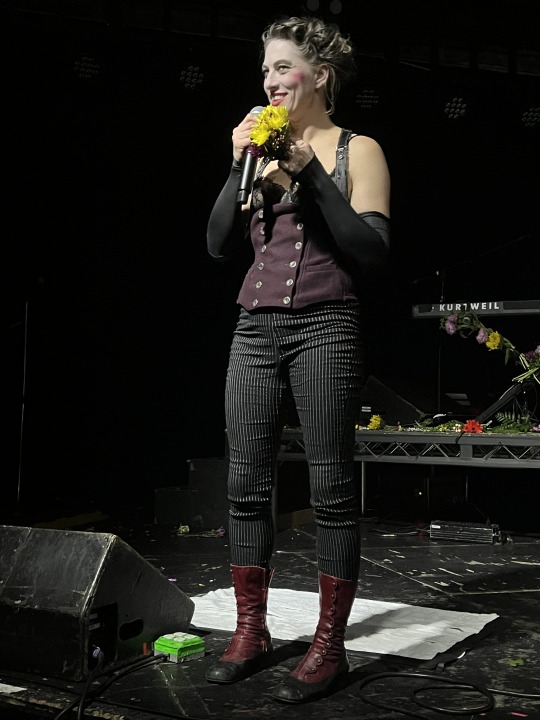
Shrouded in mist and mystery.


Preparation for …
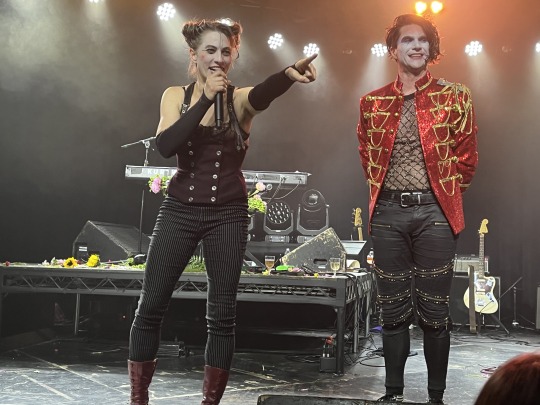
… THE SCREAM!!!! (2nd photo by Michelle Shiers)


A toast!
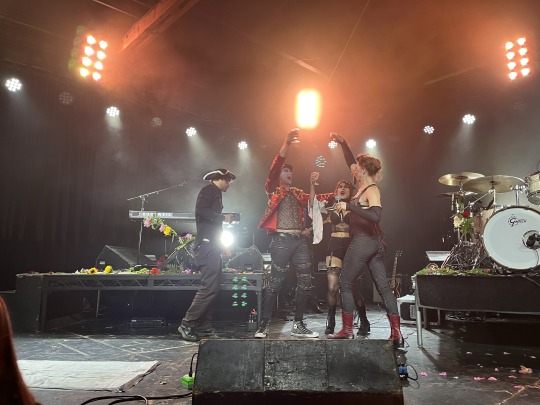
MIDNIGHT!!!



Rock god Jherek Bischoff joins the fray for New Year’s Day!
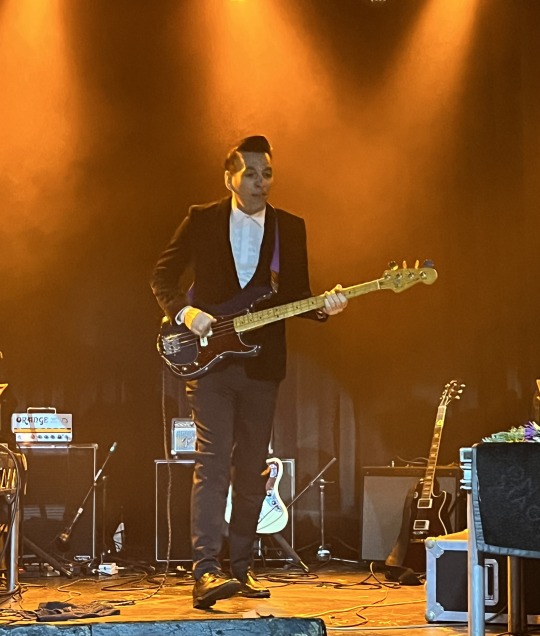
Veronica Swift playing trumpet is a whole vibe.

Full band!

5 notes
·
View notes
Text
A Film Analysis and Insight Into Reservoir Dogs and Quentin Tarantino ( A High School Creative Writing Essay )
This below is an essay I wrote for a creative nonfiction unit for my high school creative writing class in the past while that I have decided to post here online for all of you to view and see. Be aware that I have put all of my citations, sources, and information below so you may look at it if you’d like and so that I am not plagiarizing. I do not own Reservoir Dogs, its characters, themes, or claim to know the mind of Quentin Tarantino himself whatsoever--I am merely expressing my love for Reservoir Dogs in this way that I felt was acceptable. I also ask you to please pardon any unnecessary jabs I take at him or the movie, as it is for a reason. I attended a stricter conservative online school where it was not acceptable for me to gush too much about this film without balancing it out with some criticisms, which is fine. Please forgive me though for this grievance, it is out of necessity that I did it. I adore this movie and love it despite its violence and problematic characters and context. Regardless, I hope you enjoy this essay and can find something to enjoy in it.
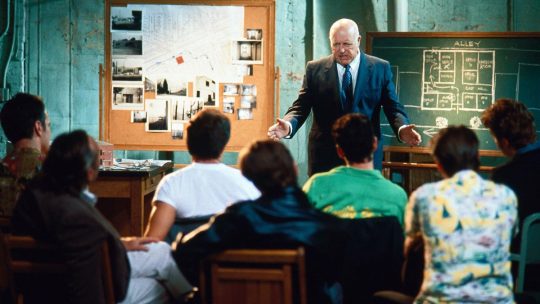
A Film Analysis and Insight into Reservoir Dogs and Quentin Tarantino
Certain films have an almost Shakespearean quality to them, dramatic, over the top, stylized, individual, and above all, cinematic. They are outstanding in the film world, iconic in name, or director, or actors, or even special effects and cinematography. Legendary or not in Hollywood mythology, we remember them and continue to do so—each generation getting something new out of them with each viewing. They are like plays on the big screen, theatrical and provoking our imaginations and deep rooted love of storytelling and narratives. Humans have always loved stories. It is a part of our very being. Aboriginal peoples of Canada and many Indigenous and other tribal communities passed down valuable lessons and traditions through oral storytelling. Literature is based on storytelling. History in and of itself is one glorified monolith of a story. We are constantly surrounded by stories, some remaining firmly in our lexicons and mindsets, imprinting on us as unique singular people. There are few directors who are able to achieve such mastery and expertise in regards to telling stories in film, and those who do are highly regarded. You will often hear of such giants of cinema as James Cameron ( Avatar and Titanic ), Orson Welles ( Citizen Kane ), Francis Ford Coppola ( The Godfather films and Apocalypse Now ), Christopher Nolan ( Interstellar and Inception ), Ridley Scott ( Alien and Blade Runner), George Lucas ( Star Wars ), Joel and Ethan Coen ( Fargo and No Country For Old Men ), Stanley Kubrick ( Dr. Strangelove or How I Learned To Stop Worrying and Love The Bomb and Clockwork Orange ), Martin Scorsese ( Taxi Driver and Goodfellas ), Brian de Palma ( Carrie and Scarface ), and many more in the discussion of film. All of these directors possess the unique ability that is a perfect wielding of storytelling on the silver screen with an almost supernatural prodigality. Blockbusters or independent, there are certain movies and directors that embody this gift brightly and brilliantly—but one man and his work stand out as one of the shiniest examples of being bestowed with the blessing of wild creativity, fervid imagination, and above all, a comprehensive and unique perspective on cinema and movie-making as a whole.
Quentin Tarantino is many things, and depending on who you ask, he is either a god of film or a disturbed and pretentious bigot hiding in the shadows behind the despicable Harvey Weinstein. Whatever your opinion, there is no denying that he is one of the many representations of the creative mind at its best and most flourishing. No matter what genre or subject matter he tackles in his movies, you can always expect ingenuity, razor sharp wit, style, and the conscious knowledge of a genius at work. Moviegoers are not forced to agree with the content in his films nor even necessarily like them—rather it is identification with the bursting stories, incredible cinematography, and his individual perspective on the world and movies that makes a Tarantino film. He uplifts cinephiles and film nerds and relabelled them as the cool kids, having been a video store clerk and passionate film lover himself. He does not simply watch movies or create them. He isn’t confined by rigid rules of the way films should be made. Tarantino lives in movies, his own or in others. In flesh and blood he experiences grief, anger, evil, psychopathy, and the experiences his characters go through. He digests the themes of his subjects thoroughly instead of detaching or assuming. Above all, he possesses a gift of innate wisdom and insight into any movie that he makes. When talking about Tarantino and his vast catalogue of films it is best to start from the beginning, when arguably he is at his best and most realised as a filmmaker. This film review will focus on the ingeniousness of Tarantino’s iconic debut movie Reservoir Dogs, and how it changed cinema, storytelling, and the way we view and understand films as a whole.
Reservoir Dogs was intentionally given a timeless aesthetic appearance, a fusion of Seventies crime films and 90’s industrialism in the gritty settings of Los Angeles streets and warehouses in this adrenaline dump of a movie about a jewel heist gone wrong. There are very few locations in this film, all culminating into “ a boiler room of tension ” as Steve Morris called it in the Cine-Files podcast episode on Reservoir Dogs. We begin the film at a bustling café where the criminals gorge on their breakfasts, sip coffee, and smoke as Tarantino’s character lectures the others about the suggestive meaning of the Madonna hit “Like A Virgin '' before launching into a spontaneous argument about the ethics of tipping waitresses in a capitalist society. In a fantastic slow motion shot, the Reservoir Dogs are then seen leaving the restaurant, suit-clad and sunglasses-wearing figures on their way to commit the heist that looms over the movie like a dark shadow. Not only does this scene illustrate the nature of the characters and sets the stage for what is to be one of the most jarring film experiences in cinema, but it also showcases the bloodthirsty ferocity that Tarantino’s movies became famous for. In between the nonlinear storyline, viewers are taken to the alternating locations of the heist organizer’s office where we see two characters agree to the job, the rendezvous point of an abandoned warehouse in suburban Los Angeles that the film’s climax takes place in, a hazy nightclub that the criminals converse in, and are placed into the cover story of the undercover cop character of the story. All of these locations are chosen with a masterful understanding of style and plot importance and they drive the storyline with the help of a dynamic ensemble cast to bring Reservoir Dogs to full fruition.
There are five characters in this movie who arguably are all on equal footing in terms of the protagonist title—criminals and jewel thieves using aliases of colors who are all tossed together into a shoddy operation by a underboss and his spoiled hotheaded son, they each have their own distinctive personalities made larger than life by stunning performances from a cast of talented minds.
Mr. Orange, real name Freddy Newandyke, played by Tim Roth is an undercover cop with the LAPD who infiltrates the catastrophic robbery the movie follows. A rookie playing the role of a bad guy, Roth was particularly interested in the role when approached by his agent, according to the unofficial biography of Quentin Tarantino written by film enthusiast Ian Nathan—due to the fact that he was a British actor pretending to be American in the role of a cop pretending to be a criminal, the duality was fascinating to Roth. Boyishly handsome looks translate into his inexperience, as he learns how to play the role of a rough and tough criminal with a great amount of effort on his part. It is not unlike the way Roth had to take on the facade of the poker-faced bluffer in real life to successfully pass as his part in the film.
Mr. White, or Larry Dimmick, is seasoned actor Harvey Keitel’s character and the veteran criminal of the gang of rough and tough brutes. A profane grizzled professional, he embodies cold criminal precision in a concrete example. Yet he possesses a hidden emotional side of his character, developing a close bond with Freddy Newandyke/Mr. Orange over the course of the movie. This connection presents as platonic and like a father-son relationship yet there is a prominent subtext of homoeroticism when analyzed closer under the scrutinous eye of the watcher. Keitel was the one who raised the budget of Reservoir Dogs to a million dollars when it was in its infancy stages into a funded blockbuster, acting as the lynchpin of the project with his sway and status within the Hollywood community and film industry. Iconic Steve Buscemi character Mr. Pink is a highly neurotic, paranoid, smarmy personality who stands out as unique amongst the lineup of characters in the film. Easily the most intuitive and perceptive of the bunch, he is obviously experienced in matters of criminality, calling multiple bluffs of the others Dogs and positing the very true reality that one of them is an undercover police officer despite being met with vigorous disbelief from his partners in crime. Whether through his bizarre beliefs on tipping, pop culture rants, or bravado of tough masculinity, he is one of the best creations in the Tarantino cinematic universe to date. It is also a young Buscemi at his peak as an up and coming East Coast actor with the chops to play in the big league, as proven throughout his stunning performance in Reservoir Dogs. It is theorized that Pink is the only character left alive at the gruesome end of the film, his whereabouts afterwards left ambiguous and unexplained by Tarantino.
Mr. Blonde/Vic Vega was a tricky part for the grizzled Michael Madsen to play as he was a notorious family man with a strong aversion to any form of violence; stated to be the brother of John Travolta’s Vincent Vega in future project and movie phenomena, Pulp Fiction. Yet Madsen is dazzling as the psychotic bloodthirsty Vic Vega, a jailbird recently released from prison after keeping silent about the employer of a previous job he did for the Cabots, the shadowy figures who preside over the Dogs with a dark masterful hand of manipulation and corruption. He is quite close to the Cabot patriarch and his son in particular, once again showcasing a homoerotic subtext that is expressed by the two characters in a passive jest. Mr. Blonde acts as the movie’s main antagonist, although it is questionable as to whether or not the Reservoir Dogs as a whole are villains or if their evil is excusable on the basis of where each of them fall on the spectrum of morality. Nevertheless he is framed as the catalyst of the elevated tensions between the characters towards the middle and ending of the movie, meeting the fate of a bullet to the gut by Mr. Orange after torturing a police officer he kidnapped for information—the scene of which is set to Stealer’s Wheel and Madsen’s gleeful dancing whilst he hacks off the cop’s ear in a disturbing yet comedic manner that has become the singular most famous moment in the entire film. Harvey Weinstein wanted it cut much to Tarantino’s chagrin but ultimately it was kept to his delight. No gore is present throughout the entire affair next to some minor bloodshed, yet it was enough to sweep Tarantino into cinema mythicality and solidify him as a force to be reckoned with.
In the role of Mr. Brown, Quentin Tarantino demonstrates his, what is arguably mediocre, acting skills as the coiffed foul-mouthed innuendo spewing getaway driver of the heist. He is a minor character in comparison to the others, a last minute decision on the part of Tarantino to play. Originally, it was him who would take the part of Steve Buscemi’s Mr. Pink, a character he favored out of the rest of the cast. However, Buscemi proved to be a better Pink than him, so he graciously wrote himself Mr. Brown. Sitting over breakfast in a cafe, he speaks the first lines of the movie, a diatribe pondering about the true meaning of the Madonna smash hit, ‘Like a Virgin’ and arguing back and forth with his contemporaries as to whether or not it is a thinly veiled reference to a deep romantic relationship or an extremely satisfactory sexual encounter. Though having little lines, Tarantino managed to be convincing enough as one of the five gangsters involved in the heist.
Eddie Bunker’s Mr. Blue was a minor supporting character along the lines of Tarantino’s Mr. Brown. A crime writer and ex gangster, Bunker was brought on to play a small role alongside the main cast who would occasionally give Tarantino pointers in regards to the accuracy of the characters, circumstances, and jargon in the context of the Underworld and crime culture. Only receiving a few minutes of screen time, he is regarded as disposable and more of an indulgence to Tarantino’s inner geek rather than as a strong relevant actor who contributes anything to the film. Still, he is a fun character regardless of what difference he makes to the overall plot of the movie.
Nice Guy Eddie Cabot played by Chris Penn is the spoiled son of character actor Lawrence Tierney’s grizzled and gruff Joe Cabot, the diamond wearing hotheaded mobster rarely seen but prominent in a behind the scenes presence to the botched heist; whom Mr. Pink accused of orchestrating the disaster intentionally for the gain of having the loot without needing to worry about possible rats hindering him from escaping. The best friend of Vic Vega, he is affected to the point of physical violence when he discovers that Vega has been killed on allegations of psychopathy that turn out to be true much to his disbelief. Joe Cabot is equally as short-tempered as his son, livid over the failure of what was intended to be an easy job. Like Pink, he believes that there is an undercover cop in the midst of the group that he pins on Mr. Orange. This furious impulsiveness earns him a death by a bullet shot alongside his son in the film’s iconic Mexican standoff scene.
The plot surrounds a group of professional thieves of different walks of life who all come together in an operation to steal diamonds from a bank for a corrupt Underworld crime boss. After much planning that seems clear to them, the heist is launched but it all goes sideways much to their dismay. After rendezvousing at the appointed safe-house, the criminals try to figure out who is the rat amongst them as one of them slowly bleeds to death in this breathtakingly violent and pop culture laden crime film with many unpredictable twists and turns that started the independent film movement of the 1990s onwards.
While the general themes within Reservoir Dogs lean on conventional blockbuster tropes of its genre, in terms of action and suspense, I would argue that there are deeper ideas within the film that are about toxic masculinity, the dirty side of criminality, a glamorization of violence, and a commentary on society and the film industry from Tarantino’s unique perspective, especially when considered from the progressive stance of nowadays. In regards to overblown male ego, this is a recurring motif in not only Reservoir Dogs but within the constructs of nearly every single movie Quentin Tarantino creates, that is on full display throughout the course of this film in particular. To begin, there are no female cast members asides from the civilian woman Tim Roth kills and takes a bullet from in the middle of the movie—she was his dialect coach on set who aided him in perfecting the American jargon and dialogue of his character. Although I do not classify this as intentional sexism on anybody’s part necessarily, it is an important fact when looking at the portrayal and views of the opposite sex in this film. Blatant objectification and sexualization do occur however with examples of this being in the form of misogynistic conversations about the physical merits of attractive women, especially who are of African-American descent, in a way that is not meant to uplift but rather novelize; as seen in the car drive to the warehouse involving Buscemi, Penn, Keitel, and Roth, in which they discuss Pam Grier, Christie Love, and an off-screen character referenced by Nice Guy Eddie. Tarantino’s character’s speech about the meaning of Madonna’s “Like A Virgin” is another demonstration of this disgusting behaviour, giving us as the audience a clear insight into the mindsets of the Reservoir Dogs; how little value they have for the humanity of others of the same or opposite gender of which unfolds in the climax of the movie in the warehouse scenes. The frequent usage of racist and homophobic slurs in the movie represents the way these characters think, further lending them an irredeemability for their conduct. Spike Lee has been a critic of Tarantino’s almost trigger-happy tendency to use Problematic is this along with the way the movie treats violence. It presents a highly provocative cinematic image of effortless coolness for wannabes to strive for, inspiring modicums of thought that hold that criminality, bloodshed, and grey morality are acceptable because characters on the screen are doing said actions. Many people took issue with this supposed downplaying of the malice behind being a criminal when the film was released and continue to do so with each project Tarantino undertakes. The scenes most point to in Reservoir Dogs are the Stuck In The Middle With You sequence in which Michael Madsen’s coldhearted Mr. Blonde tortures a cop while horrifyingly swaying about to the famous Stealer’s Wheel tune in what is played for a macabre joke than anything out of substance. My opinion is that this visual elevates the movie into legend just by sheer boldness, though many would disagree with my assessment. Such other occurrences of violence made into a pleasurable fantasy are represented during Mr. Pink’s escape from the police after fleeing the scene of the crime, when he unloads a round of bullets on a group of cops, the Mexican standoffs, and the police versus criminal shootouts that take place. While some believe this is desensitizing to a very real issue, I believe that it should be taken with a grain of salt as it is a cinematic representation that does not remotely attempt to convey a message of committing immoral deeds on the basis of what was seen in a movie. Tarantino has justified the violence and harsh argot present in his movies as being “the way his characters talk” and not upholding them as the standard of good behaviour. Comeuppance is served out quite well in the end of the movie to all involved, though gruesomely, justice being dealt to those who did wrong. Their rampant pride, egotism, megalomania, and twisted sense of morale results in their downfalls, each paying for his hateful life in a way that is an indictment on corrupted masculinity; what happens when bigotry and brutality are allowed to fester unchecked by a society who has lifted its hand off the wheel.
The sociology surrounding the film is admirable, playing into tropes about identity, interaction, and individualism that recur throughout the movie—a lack of knowledge about their true identities, functioning as a group unit in a chaotic situation, and the fragmentation of said dynamic that devolves in Reservoir Dogs. An anonymous user on the gradesaver.com website wrote about it this way, in regards to the prevalent violence and themes of identity demonstrated in Reservoir Dogs:
“ The violence of Reservoir Dogs shocked audiences when it opened in 1992, as the level of violence it portrayed had not been seen in independent film up until this point. The violence, though has a purpose. It serves character as well as story. Mr. Blonde embodies violence and through him we are able to see the darkness that lies within an individual who's lived a life of crime. He represents an unpredictable type of violence. We also see what Mr. White, Pink and other members of the crew would deem 'necessary violence.' An example being when Mr. White kills the two cops chasing him, Orange and Brown, and when Mr. Pink asks if White killed any cops he confirms it and they are glad about it because cops are real people. But, they react differently when they speak of a young black woman who was killed as they view it as heinous. Finally, we see the Mr. Orange go from an excitement to be going undercover to the reality of seeing Mr. White kill men he works with, and then he himself killing an innocent woman while stealing her car. Once he experiences the violence first hand he feels the weight of it, and the price is heavy… In Reservoir Dogs, the characters don't know who's who as they all are given code names. So, when the diamond heist goes south when the cops arrive far earlier than they should it means there is a traitor in the crew. But, no one knows who it could, and one way of proving someone's identity as a criminal or a rat was to add up their acts of violence. If you killed a cop you were clean, if you took a bullet you were clean, if you went crazy more than likely you were clean. All of this leads to characters only being able to rely on what they believe about someone. Thus Mr. White believes Mr. Orange to be clean while Joe doesn't. The whole issue of who is who leads to no one escaping the violence with their life.”
These themes all play a crucial role in establishing the characters in their respective classes of evil and how it feeds into the idea of toxic masculinity gone horribly wrong right up from casual banter about racist, sexist, and homophobic ideas, all the way to the tipping of the scales when guns are pointed upon one another. It is a commentary about the villains under our noses, evil men who walk the streets much to our unawareness. Violence serves as a tool to deliver this virtue, but whether it was intentional or not is up for debate, I like to believe it was. While they are hard to stomach and process, Tarantino has never shied away from deep philosophical thematics in his films and it is clear as day in these scenes and in the whole of this one in particular when analyzed with a close eye. An entire essay could be dedicated to the abundance of noteworthy attributes Quentin Tarantino’s debut film has to its name, changing the way the world and the American culture thought of film thanks to its challenging of cinematic status quo, demolishment and renewal of classic tropes, and explosive imagery that ushered in the independent film movement of the 90’s. However, for the sake of generality, only the qualities that stand out the most will be referenced in this analysis. To begin, it is crucial to look at the context of this movie within the cultural zeitgeist at the time of its release. The movie industry in the 1990s was clamouring for a smash hit that would reinvigorate corporate and public interest after it had waned with the repetition of big buck blockbuster hits, in the action genre in particular, that had dominated the previous decade with only mild results in most cases. At the time, the indie film scene was relatively underground, with new inexperienced filmmakers putting out big hits such as sex, lies, and videotapes or Public Access, leaving film producers, directors, and moguls stunned. Tarantino was one of these independent filmmakers, a bonafide alumni of cinema who learned the tricks of the trade through watching movies and working as a video store clerk. He made his breakthrough by selling a screenplay for a movie entitled True Romance that was a mediocre success, nonetheless receiving fifty-thousand dollars for his script. The draft of Reservoir Dogs was sitting in his cabinet waiting for the right moment to come to fruition. Originally, Tarantino planned to record the movie alongside fellow video store employees and his dance aficionado friend, Lawrence Bender, in the roles for a low budget. Many companies had their interest piqued by Tarantino’s script for the film, of which was like nothing they had ever encountered. Eventually, it was the Miramax corporation under the Weinstein brothers that took the plunge and funded the film. After a fantastic ensemble cast was brought on, the script written, a short five-week shoot, and the final touches in place, Reservoir Dogs premiered at the Cannes Film Festival in October of 1992 to wild success amongst audiences who were blown away by the dynamite nonlinear storytelling, independent nature, masterful dialogue and iconic characters, the galore of pop culture references, and nauseated by its graphic violence that would soon become Tarantino’s bloody legacy. He proved that you didn’t need to be a film school graduate to love and make your own movies—all you need is drive, determination, and a whole lot of guts. The technical portions of what makes Reservoir Dogs unique is layered throughout the entire movie. Two shots are most jarring and important though, being imitated countless times in recent years in movies and pop culture. As the credits roll at the beginning of the film whilst the Dogs are leaving the cafe to commit their heist, a forever infamous slow motion shot of them walking suit-and-shades-clad rolls for a minute to the George Baker Selection tune “Little Green Bag”. This was done to showcase the coolness of the characters along with a nonverbal introduction to each of them in a manner that clearly shows their individual personalities separate from the whole of the group. The stylish look plays into the timeless retro aesthetic of Reservoir Dogs that has partially alongside Pulp Fiction resulted in the adjective ‘Tarantinoesque’ being coined to describe this gritty, edgy, and rough setting seen in his catalogue of films.
Visual merits are essential in any movie and so much so in Tarantino movies, Reservoir Dogs being the shining example of this inherent talent on his part. The latter shot is in the warehouse sequences where the shootouts, tortures, and final deaths happen create a unnerving and disturbing atmosphere that thrusts the audience into the dissolving cordiality between Pink, Orange, Blonde, White, and Nice Guy Eddie. It is an uncomfortable look into their heads, gripping the viewer with the same bracing for trouble as they feel. Tight camera angles achieve this effect perfectly, making it seem all the more real the further the criminals descend into paranoid and psychotic madness. The dialogue is another attribute worth discussing when it comes to Reservoir Dogs, a foul-mouthed series of pop culture homages, obscenities, slurs, and clever logical analyses that all drive the plot forward, in a way that removes the earnest stern facade associated with criminals from the characters to show they are merely ordinary people, and also serves as a whodunnit dissection narrative among themselves. Tarantino is known for his expert screenwriting, lacing profanities with eloquence at once in an intoxicating combination that has been replicated over and over again by numerous movies. Evidence of this is the quotability of his movies, within film itself and in the public too who can remember entire scenes of talky dialogue from a Tarantino film. This aggressive language and the violent feel of the movie are summed up beautifully by biographer Ian Nathan in his book on Tarantino:
“ Fractured tough-guys shielded in Ray Bans with their compendiums of L.A. street slang spliced into pop cultural sermons archived in his voluminous memory. He was a Method writer: all their voices flowed out of him like a river. He thrilled to the effect his characters were having on audiences and critics. He intended to shatter the ‘square dance’ mentality of Hollywood filmmaking. And the ear-slicing centrepiece, which garnered such notoriety, was the ultimate proof he could have the audience dancing to his fiddle. Drown the film in blood and the audience becomes anaesthetized. The nerve-jangling thrill of Tarantino is in anticipation of violence—in imagining what lies ahead. “
Dazzling and shocking violent imagery paired with breathing characters who take centre stage with their bloody antics became a staple of Tarantino movies, Reservoir Dogs being the first to prove this point. This movie was also a blatant call-out to the toffee-nosed haughty film school majors Tarantino likes to poke fun at, being an example of not needing classic training in a formal film school to be a director, destroying those boundaries in a steady swoop with Reservoir Dogs. That and Pulp Fiction subsequently after it would establish Tarantino as a household name, a mythical icon of the 1990s who would go on to be one of the most innovative moviemakers of his generation, influencing several films in its wake. If you can make it past the intense violence, political incorrectness, nonlinear story, and the constant pop culture allusions, than I would most definitely recommend watching Reservoir Dogs—not only to see Tarantino’s fantastic debut as a filmmaker and his brilliance at work, but to also see the way that cinema doesn’t have to conform to Hollywood’s traditional standards nor to our perceived ideas of what movies or movie watching experiences are. There is no question in my mind that this film will continue to endure and influence, leading many folks such as myself to want to pursue a career in directing, screenwriting, cinematography, or acting. It is not flashy in the way a Steven Spielberg film would be, nor is it a serious drama like the movies of Hitchcock, it isn’t even a big name headliner along the lines of James Cameron or Taika Watiti.
Yet, Reservoir Dogs continues to stay fresh, expressive, bold, and utterly singular in its uniqueness to this day, thirty years exactly after its release in 1992. My reasons for recommending this movie aside from personal bias include for the revolutionary filmmaking at a technical and experiential level, a lesson to any film student and aspiring filmmaker desiring to make their name. Cinephiles and ordinary moviegoers would be in for an unforgettable experience watching it the first time around or rewatching it, something new offered with each viewing. Through Reservoir Dogs, you know Tarantino at a personal almost spiritual level, his identity, essence, and creative mark crystal clear throughout the very DNA of the movie, tapping into the prodigal mind of one of cinema’s most iconoclastic and laureled directors. One should see the movie not just exclusively for Tarantino, however. The phenomenal acting, highly quotable dialogue, fantastic action scenes, and adrenaline inducing tension unlike any other gangster, crime, or thriller film of its time and to this day are all valuable assets the movie has that are well worth seeing. Reservoir Dogs cannot be put into a box, a rare feat for a film to accomplish, and even rarer for it to find such a dedicated fanbase who adore it with such high regard next to countless other movies many would place it above. It is a nonconformist masquerade for the misfits, the niche, and the rebellious to beat their drum to, a symphony that has touched many despite its strange storyline and graphic gory sequences. Nonetheless, Reservoir Dogs itself continues to shine on as does Tarantino, who has been elevated to godhood in pop culture in spite of wokist calls for cancellation and blacklist along with conservative uproar that misses the real meaning behind his films. At the end of the day however, Quentin Tarantino reigns as an undisputed king within the elitist club of cinema legends, each film transcending the last as he matures, grows, and learns as a filmmaker. Still, Reservoir Dogs for me remains him at his absolute best, never to be topped or done out of. Many directors have asserted that there is a sort of gracefulness, an elegance, a highly theatrical-like element that filmmaking has, and if that is true, then Quentin Tarantino would be the Shakespeare of his time, Reservoir Dogs his breathtaking high velocity debut.
Works Cited For This Film Review
Bender, L., Hellman, M., Gladstein, R. N., Tarantino, Q., Keitel, H., Wallace, R. B., Rachtman, K., Heimann, B., Menke, S., Wasco, D., Sekula, A., Lesco, K., Bühler, M., Jones, I., & Fioritto, L. (1992). Reservoir dogs. Retrieved August 16, 2022.
Dargis, M. (1992, November 1). Manohla Dargis on Quentin Tarantino's Reservoir Dogs. The online edition of Artforum International Magazine. Retrieved August 17, 2022, from https://www.artforum.com/print/199209/quentin-tarantino-s-reservoir-dogs-33499 Editors, W. (2022, August 15).
Reservoir dogs. Wikipedia. Retrieved August 17, 2022, from https://en.wikipedia.org/wiki/Reservoir_Dogs
Morris , Steve, and John Rocha . 8 Reservoir Dogs ( The Cine-Files Podcast Episode ). Spotify, 4 Aug. 2016, Accessed 19 Aug. 2022.
Nathan, I. (2019). Reservoir Dogs. In Quentin Tarantino: The iconic filmmaker and his work. essay, White Lion Publishing.
Shone, T. (2017, October 8). The glorious bullshit of "Reservoir dogs," Twenty-five years later. The New Yorker. Retrieved August 17, 2022, from https://www.newyorker.com/culture/cultural-comment/the-glorious-bullshit-of-reservoir-dogs-twentyfive-years-later
Srihari , P. (2017, November 24). Reservoir dogs turns 25: How Quentin Tarantino inspired a generation of indie filmmakers-entertainment news , Firstpost. Firstpost. Retrieved August 17, 2022, from https://www.firstpost.com/entertainment/reservoir-dogs-turns-25-how-quentin-tarantino-inspired-a-ge neration-of-indie-filmmakers-4167459.html
Tarantino, Quentin. “Reservoir Dogs Themes.” GradeSaver, 19 Aug. 2022, https://www.gradesaver.com/reservoir-dogs/study-guide/themes.
11 notes
·
View notes
Text
How many women will these fangirls harass on behalf of old men who peaked years against until they see a pattern?
Marilyn Manson sued his ex-girlfriend Evan Rachel Wood after she accused him of rape and abuse.
Leading up to the trial, Manson fans are using some of the same tactics used against Amber Heard.
Across YouTube and TikTok, content discrediting Wood is already gaining traction.
Marilyn Manson sued his ex-girlfriend Evan Rachel Wood for defamation after she accused him of rape and abuse.
In February 2021, actor Evan Rachel Wood released an explosive statement in which she accused her ex-boyfriend, singer Marilyn Manson — real name Brian Warner — of grooming and abusing her during the course of their relationship. Manson denied the claims in an Instagram statement saying his intimate relationships have "always been entirely consensual."
The pair met in 2005 when Wood was 19 and Manson was 36. They confirmed they were dating in 2007 and had a tumultuous, on-and-off relationship until 2010, when they broke up following an engagement.
In the subsequent years, Wood spoke publicly about being sexually assaulted and abused, but did not name a perpetrator. Following her statement accusing Manson last year, the singer's record label dropped him and he was cut from two acting projects, Deadline reported.
Now, Manson is suing Wood for defamation, following his close friend Johnny Depp's lead after the latter filed a similar suit against his ex-wife and accuser Amber Heard. Depp's defamation case against Heard dominated the cultural conversation earlier this year.
Manson is likely hoping he sees the same treatment as Depp, who was largely perceived as the winning party thanks in part to how his fans mobilized on social media and pushed the narrative that Heard lied about the accusations.
Depp's supporters on social media — bolstered by TikTok and Instagram algorithms, drowned out those who backed Heard.
After the trial concluded — finding for both parties but awarding Depp $15 million in damages compared to $2 million for Heard — public perception shifted slightly. In the months since, many have come to believe that the treatment of Heard on social media and in mainstream media was toxic and potentially damaging to people who speak out about abuse experienced at the hands of powerful men.
The pro-Depp contingent has remained vocal about their support for the actor; they continue to argue he was the true victim of abuse in the relationship. Now that the Depp-Heard trial is over, they've begun using some of the same tactics with Wood that successfully discredited Amber Heard.
Here's how.

During Depp's trial, rumors that Manson would be testifying on his behalf began to swirl. While Manson never took the stand, both Depp and Heard brought him up in their testimonies.
Around the same time, a photo of Amber Heard with Evan Rachel Wood surfaced, suggesting the two women were friends.
On July 20, according to various screenshots shared on Twitter and TikTok, Wood posted an Instagram story responding to the resurfaced image. Wood's Instagram account has since been made private and Insider was unable to verify she shared the image.
"Oh look, a photo from 2015 that keeps circulating trying to 'prove' something," the purported post read. "This photo was taken at an event honoring my stylist, who also styled JD. I arrived alone and was seated at this table."
"With certain logic, everyone who was seen in a photo with Weinstein would have to be a rapist," she continued.
This led to backlash against Wood. Heard supporters suggested she was equating Heard to Weinstein, who was convicted of rape in February 2020.
Nevertheless, the image helped solidify the idea of a link between the two women in the public consciousness.

TikTok was one of the first online spaces coopted by Depp fans. They declared him the trial winner before Heard even took the stand. The anti-Heard narrative on TikTok may have won partly because Depp's fans got there first and flooded the algorithm.
TikTok content about Wood's accusations against Manson has not reached anywhere near the saturation that Depp v. Heard content did during the trial, but it seems it may be on a similar path.
Short videos sharing condensed — and therefore inevitably distorted — explanations of the accusations against Manson are receiving hundreds of thousands, or even millions, of views.
It seems the platform's algorithm may already have been tampered with, too. The hashtag #justiceformarilynmanson has received 1.5 million views, and #istandwithmarilynmanson hhas received 3.3 million views.
Meanwhile, the hashtag #istandwithevanrachelwood has 342,000 views, and just three videos have been uploaded to the platform using the hashtag #justiceforevanrachelwood; they have a combined total of 2,240 views.
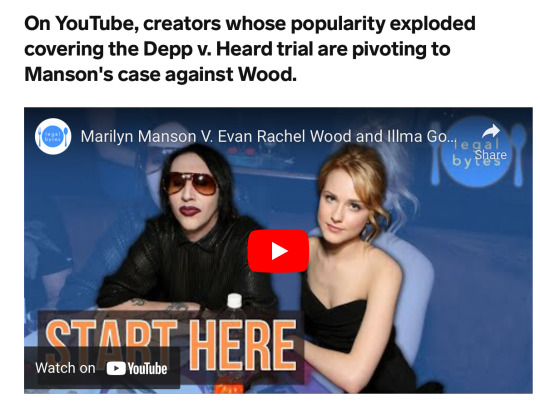
For YouTubers, tapping into a conversation dominating the zeitgeist can be hugely profitable. Insider previously reported that legal commentators made tens of thousands of dollars by reacting in real-time to livestreams of the Depp v. Heard trial on YouTube.
A number of social-media creators with no background in law or journalism spotted the opportunity and followed suit, seeing a massive spike in their audiences when they began to discuss the trial, often with a pro-Depp stance.
As reported by the Washington Post's Taylor Lorenz, content that social-media influencers produced skewed heavily pro-Depp, and Depp's team took advantage of it. Adam Waldman, who represented Depp during the trial, told the Post that he was in communication with some of the YouTubers, whom he referred to as "internet journalists."
One of the most polarizing figures in this space was anonymous YouTuber ThatUmbrellaGuy. According to SocialBlade, a social-analytics tracker, his channel went from typically receiving under 500,000 views per week to between 3 and 6 million views over the course of the trial, which he covered from a pro-Depp perspective. Some of his most-viewed videos include "Amber Heard ADMITS Depp HOAX in BOMBSHELL AUDIO?!" and "Judge's BOMBSHELL decision RUINS Amber Heard; Depp FINALLY sees JUSTICE!"
Since the success of his pro-Depp content, ThatUmbrellaGuy has posted several tweets about Evan Rachel Wood's accusations, saying there was no evidence of her claims, equating the two cases, amplifying Manson's claims, and confirming that he'll be covering the case.
Colonel Kurtz, a fellow pro-Depp YouTube channel, has already begun to create pro-Manson content. Since the Depp v. Heard verdict was read on June 1, she's uploaded at least nine separate videos about Wood and Manson.
Several other high-profile pro-Depp YouTubers have pivoted to pro-Manson content in recent weeks.
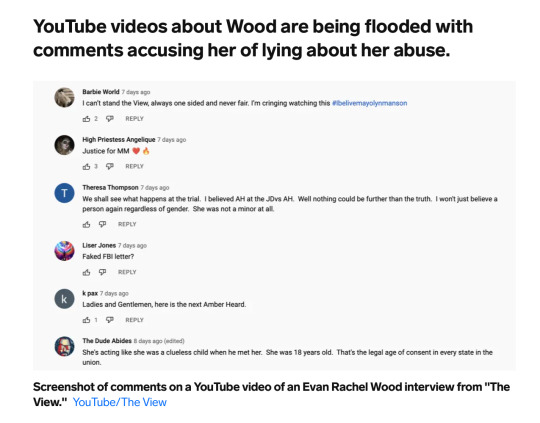
The top two YouTube videos that appear under a search for "Evan Rachel Wood" are clips from interviews she took part in on "The View" and "The Drew Barrymore Show," in which she discusses her accusations against Manson.
While some of the most-liked comments are supportive of Wood, they are mostly three to four months old. The most recent comments skew negative, calling her a "liar," "spoilt," comparingher to Heard, and discrediting her accusations. Commenters also left critical comments on videos of Wood speaking to ABC Newsand the YouTube channel for Self, a wellness publication, both of which appear in her top 10 search results.
Recently, comments discrediting Wood's accusation that Manson raped her during the filming of the music video for his song "Heart-Shaped Glasses" have also appeared under the YouTube upload of the video.
YouTube-channel owners are able to pre- or post-moderate comments if they choose to.

During the Depp v. Heard trial, a Change.org petition to remove Heard from the movie "Aquaman 2" received millions of signatures. A since-debunked rumor that she had been fired went viral, appearing to convince some people that Hollywood had turned against her.
Now, some users appear to be trying to use similar tactics against Wood. In mid-July, a petition to fire Wood from the TV show "Westworld" in which she currently stars was launched. So far, it only has a handful of signatures, but it follows a string of similar petitions, including one to "cancel" Wood and one to "ban" her from social media.
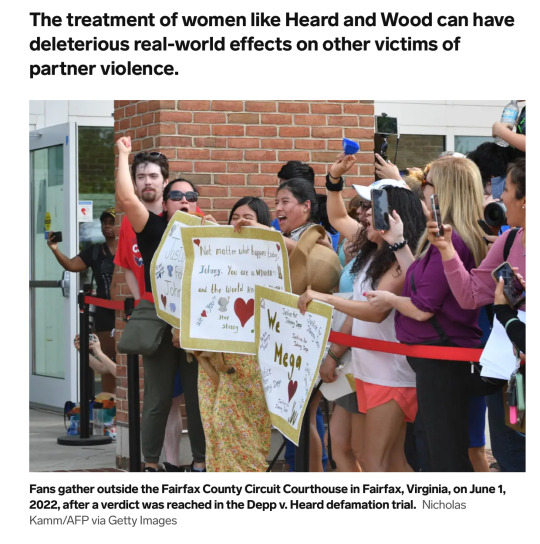
The Depp v. Heard trial and subsequent verdict, which favored Depp, raised concerns among abuse-victim advocates.
Michelle Sacks, the director of training at the Houston Area Women's Center, told the Guardian that the intense trial coverage made it "inescapable," which could trigger and ignite a trauma response in survivors.
There are reports that the real-world impact is already manifesting. Christine Scartz runs a free legal clinic for domestic-violence victims in Georgia, and told the Associated Press that one woman she spoke to wanted to pursue abuse claims but was worried about being "seen to be a liar like Amber Heard."
Maureen Curtis, the vice president of criminal-justice programs at victim-assistance organization Safe Horizon, told Rolling Stonethat following the verdict she was contacted by "hundreds" of survivors looking to retract public statements or pull out of court cases against their abusers.
Rachel Gevlin, an assistant professor at Birmingham-Southern College in Alabama, whose research specializes in the history of divorce law and its impact on women, wrote for The Conversationthat the media circus surrounding the Depp v. Heard trial can be traced back to a long history of trials that publicize sexual details of relationships to threaten women with humiliation.
Gevlin told Insider that she would "not be surprised" to see a similar pattern of engagement and social-media responses play out in the case Manson is bringing against Wood.
"There's a centuries-long history of readers who enjoy hearing the salacious details of the rich and famous," she said.
Gevlin added that the overwhelming support for the men in these cases could largely be chalked up to the residual impact of living in a patriarchal culture.
But, now, thanks to social media, people are able to publicly weigh in on these issues, possibly as a way of "working through personal, deep-seated opinions on these topics that, ultimately, have more to do with ourselves than they do with the celebrities in question," she said.

8 notes
·
View notes